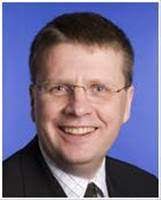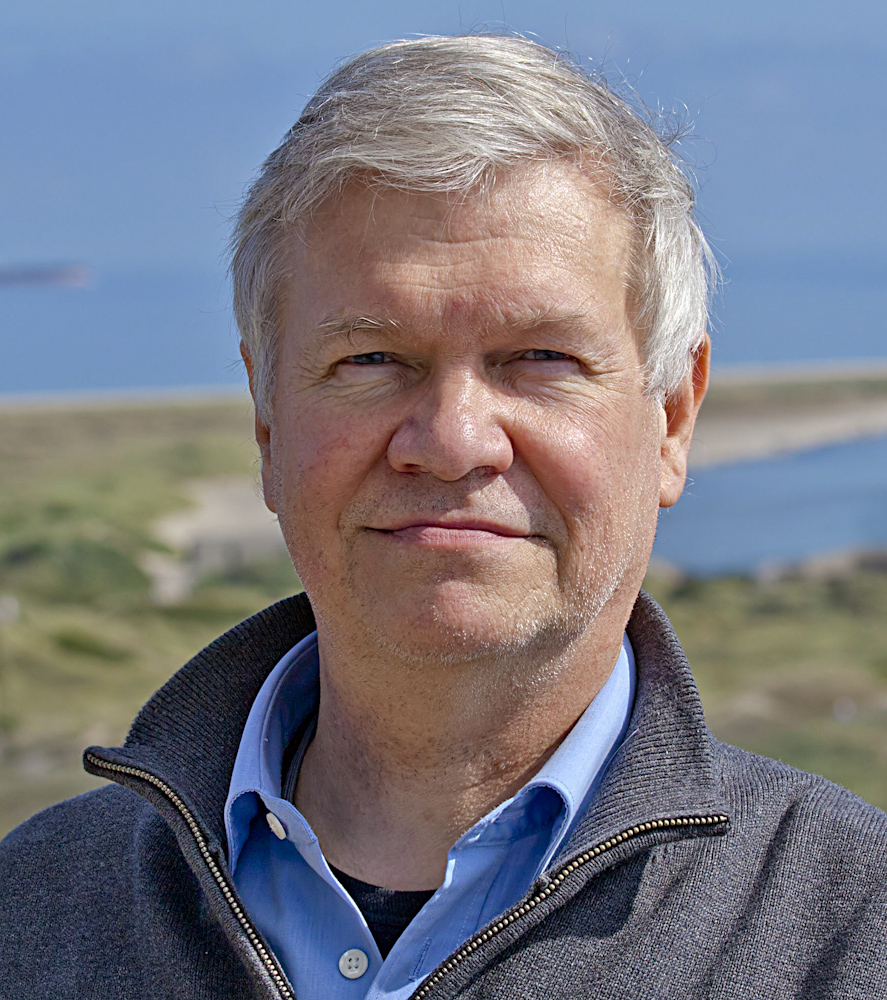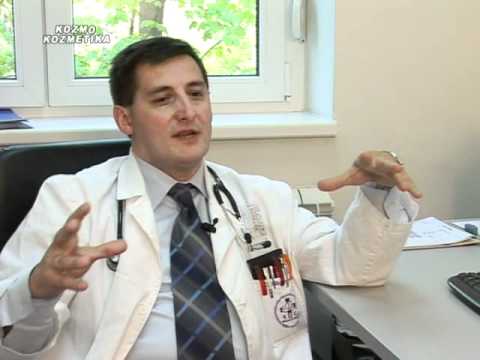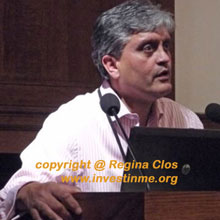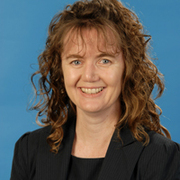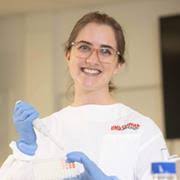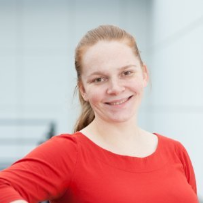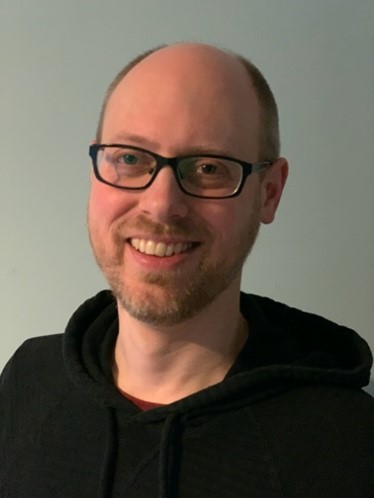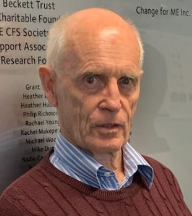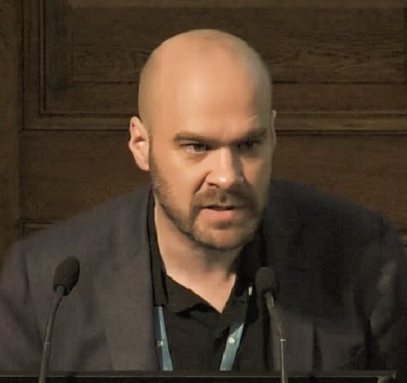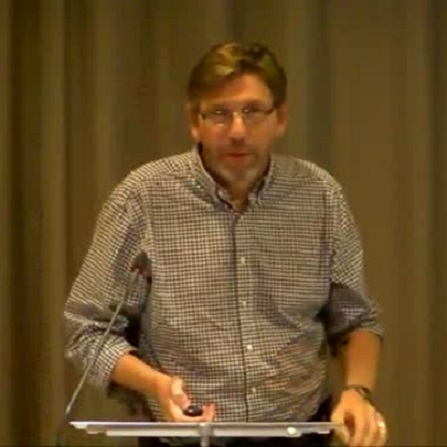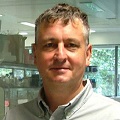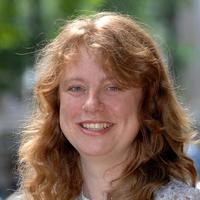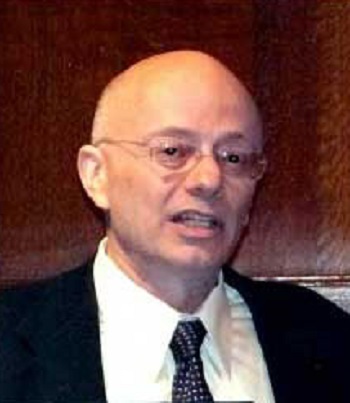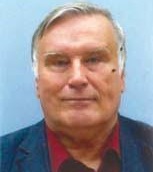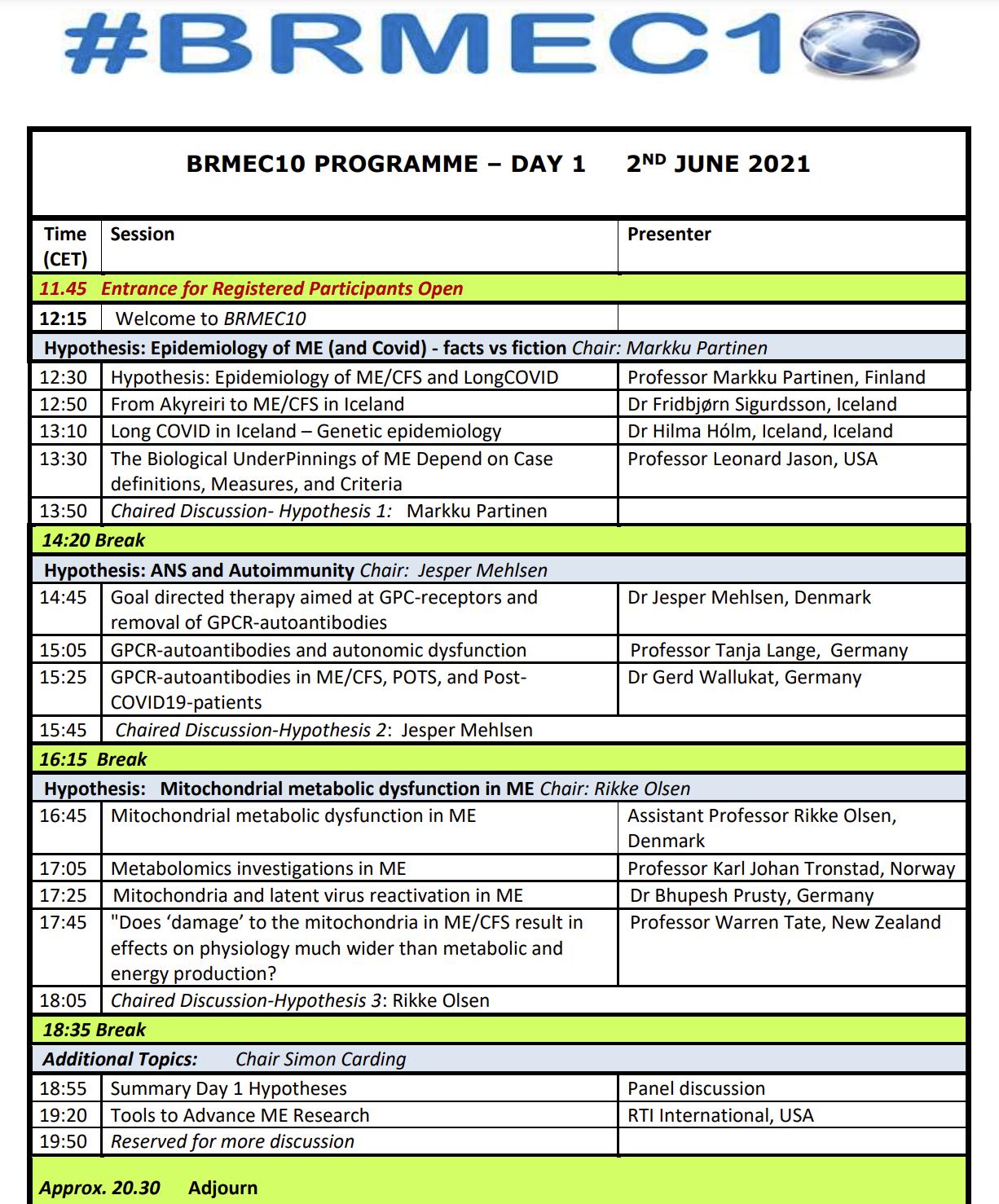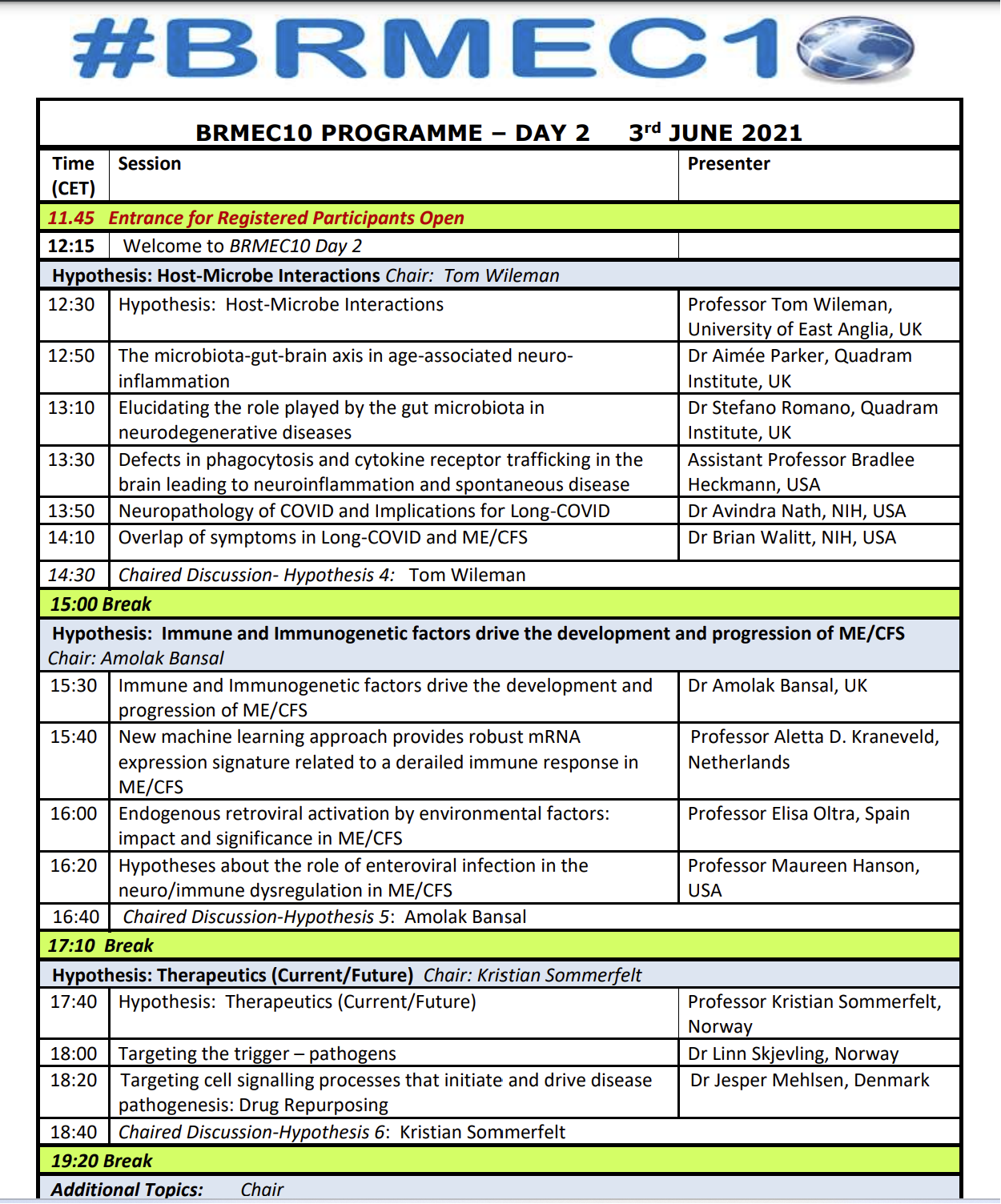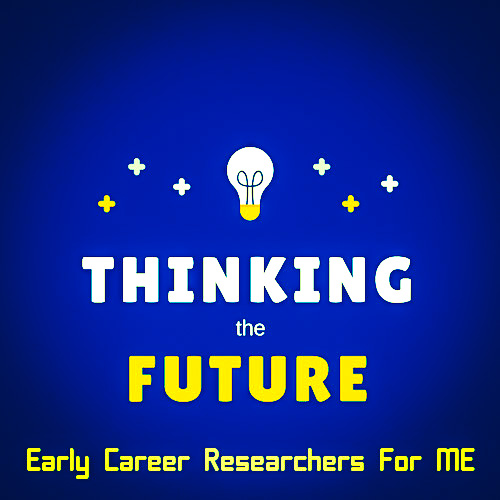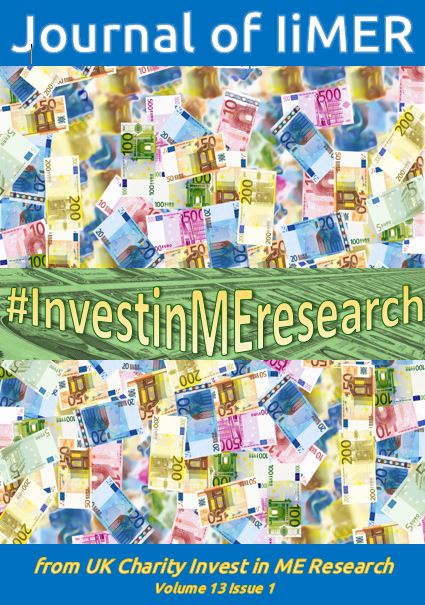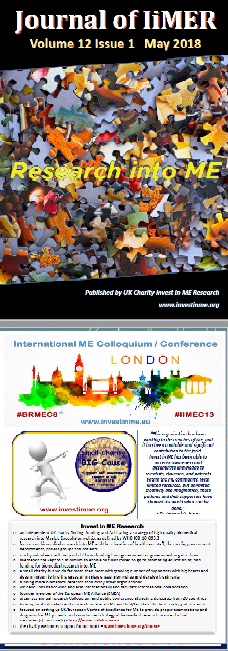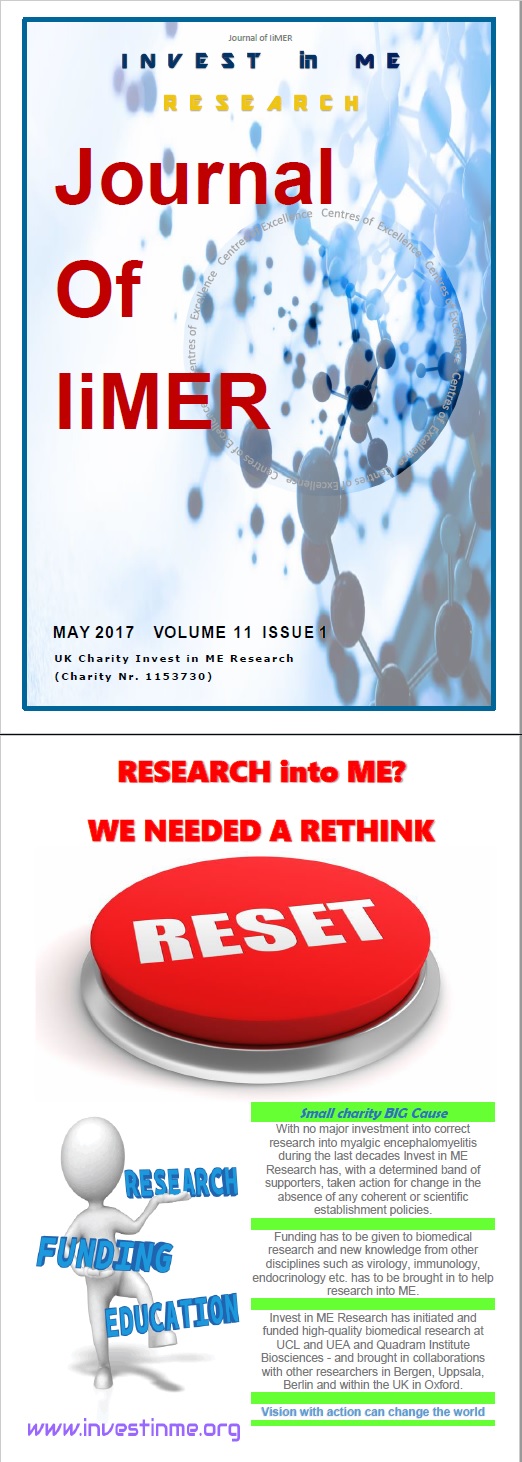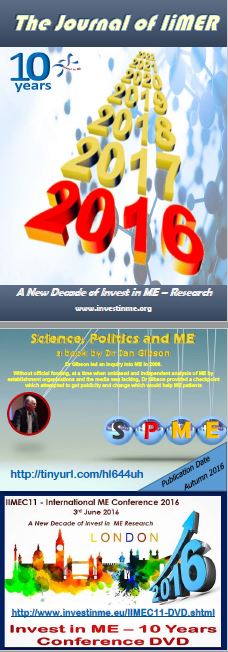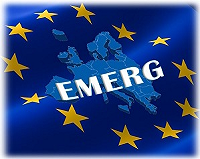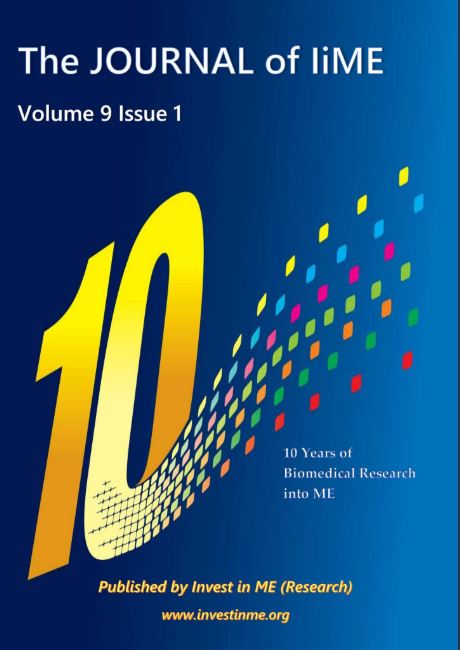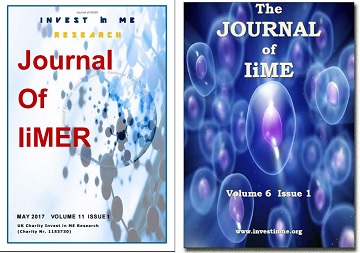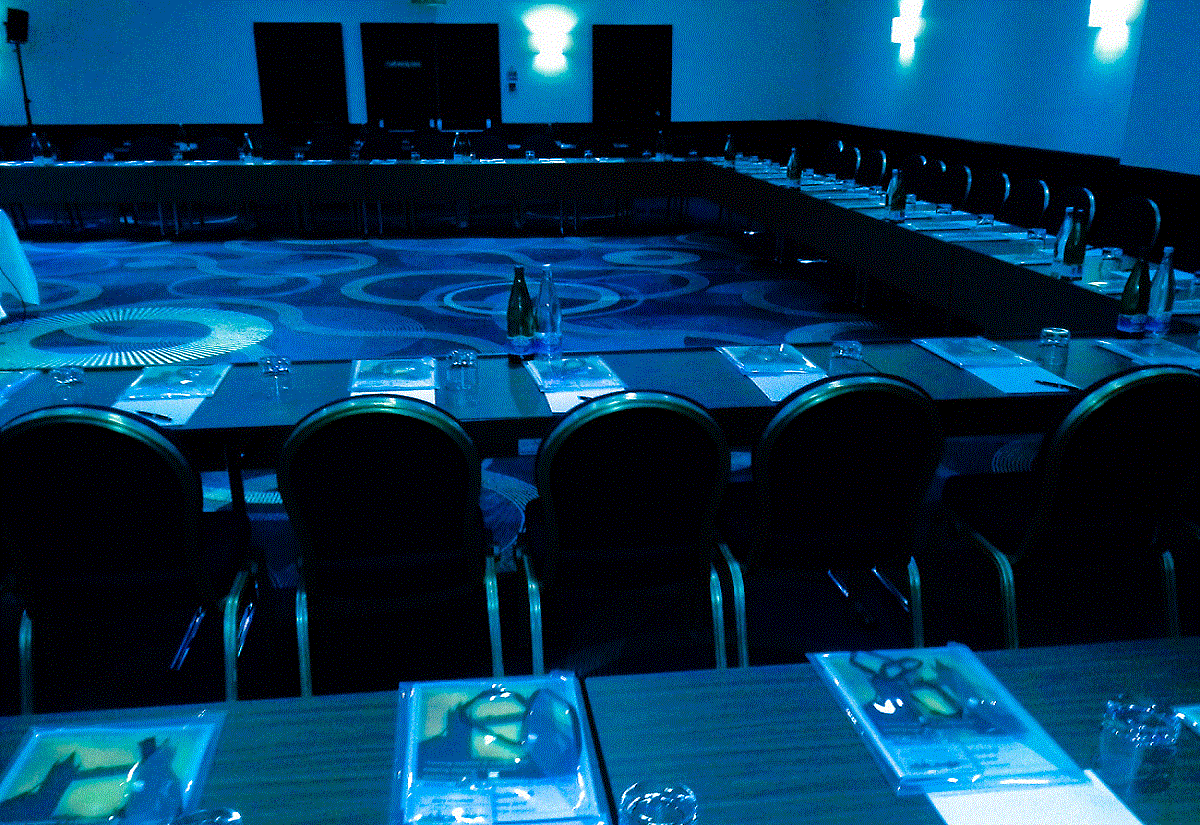Invest in ME Research International ME Research Colloquiums
Invest in ME Research Colloquiums

Past BRMEC* Research Colloquiums
Click below to expand detail for each Colloquium event
ME and Long Covid: Emerging insights in mechanisms and complexity of post-viral fatigue
The 12th International Biomedical Research into ME Research Colloquium took place on 31 May - 1 June 2023.
Developing further insights into mechanisms and complexity of myalgic encephalomyelitis including aspects of long covid research.
ME, and more recently Long Covid, place a huge burden in healthcare yet the capacity of research has continually been
restricted by limited funding.
With developments around research into Long Covid and with the similarities of some symptoms to those experienced by people
with ME then this topic was also included as a central component of the agenda and a number of
presentations concerning ME and long covid were given with a focus on the aetiology of the disease.
The knowledge and the road travelled by ME researchers and clinicians is an invaluable aid for understanding long Covid.
Understanding the viral and immunological mechanisms behind both of those conditions is the key to making progress.
This was the first in person Colloquium since the pandemic began in 2020.
The charity was also using a new venue - the Wellcome Genome Campus near London Stansted airport
and in between the city of London and Cambridge.

Some of the institutes, organisations and agencies that have speakers, representatives and participants attending the conference week 2023 events -
Quadram Institute
National Institutes of Health (NIH)
University of East Anglia
Kings College London
University of Oslo
University of Bergen
University of Helsinki
University of Uppsala
University of Würzburg
Nova Southeastern University, Miami
Université de Montréal
Charité University Hospital, Berlin
Universidad Católica de Valencia
Harvard Medical School
Aarhus Universitet
Georgetown University
University College London
European ME Research Group
Copenhagen University Hospital
Cornell University
University of South Florida
University of Vermont
The Jackson Laboratory
NCNED, Australia
University of Liverpool
The Free University in Amsterdam
Centers for Disease Control and Prevention (CDC)
Medical University of Vienna
Imperial College London
Mayo Clinic
Linköping University
Simmaron Research
North-West University
Queen Mary University London
University of Utrecht
Stanford Genome Technology Center
Columbia University
Radboud University
University of Nottingham
University of Amsterdam
University of Birmingham
University of Otago
Johns Hopkins University
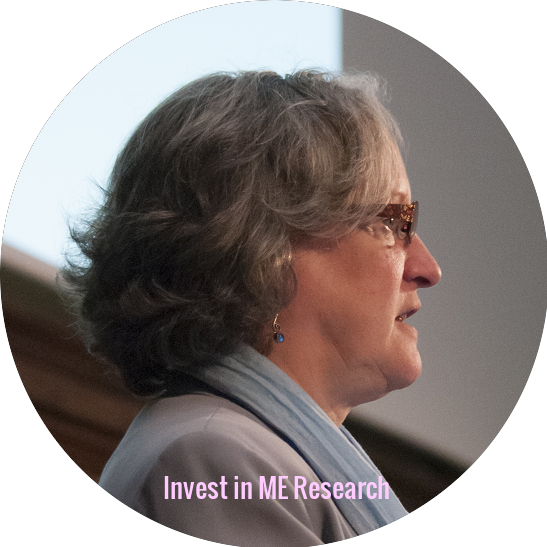
Dr Vicky Whittemore
USA
Dr. Whittemore oversees a grant portfolio that includes basic, translational and clinical studies on epilepsy. These include grants on sudden unexpected death in epilepsy (SUDEP), the genetic epilepsies, and seizure localization studies. In addition, she oversees a grant portfolio on myalgic encephalomyelitis/chronic fatigue syndrome (ME/CFS) and fatigue. Her additional interests are in research on global health issues, stigma, and co-morbidities.
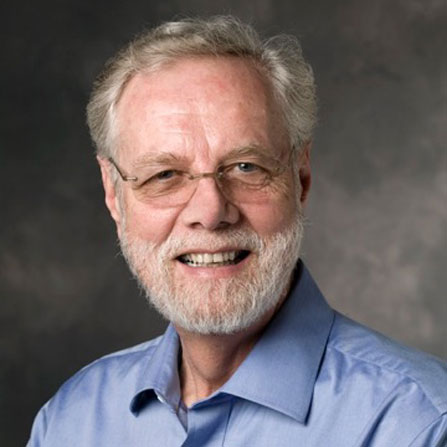
Professor Ronald Davis
Professor of Biochemistry and Genetics at the Stanford School of Medicine in Stanford, California, USA
USA
Ronald W. Davis, Ph.D., is a Professor of Biochemistry and Genetics at the Stanford School of Medicine in Stanford, California.
He is a world leader in the development of biotechnology, especially the development of recombinant DNA and genomic methodologies and their application to biological systems.
At Stanford University, where he is Director of the Stanford Genome Technology Center, Dr. Davis focuses on the interface of nano-fabricated solid state devices and biological systems.
He and his research team also develop novel technologies for the genetic, genomic, and molecular analysis of a wide range of model organisms as well as humans.
The team's focus on practical application of these technologies is setting the standard for clinical genomics.
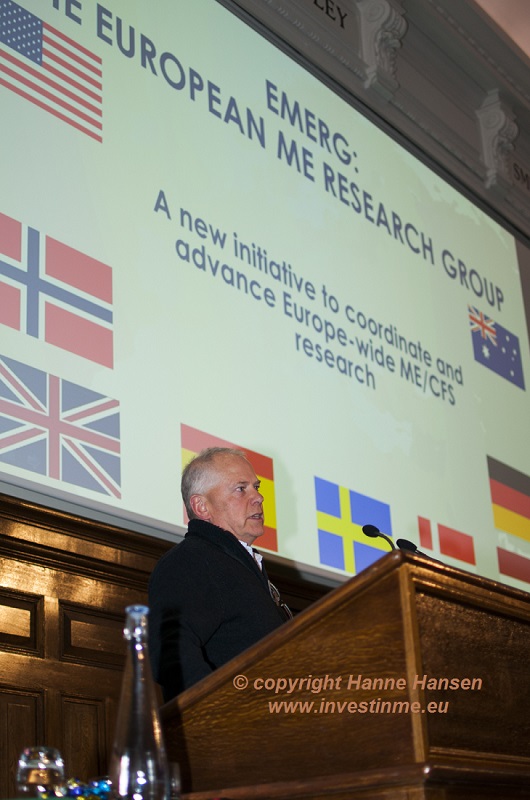
Research Leader, Quadram Institute Bioscience, Norwich Research Park, UK
Professor Simon Carding
UK
Upon completing postgraduate work at the Medical Research Council’s Clinical Research Centre in Harrow,
Professor Carding “emigrated” to the USA to take up a postdoctoral position at New York University School of Medicine,
and then at Yale University as a Howard Hughes Fellow in the Immunobiology Group at Yale University.
While
at Yale an interest in gamma-delta (γδ) T cells was acquired working closely with Adrian Hayday on molecular genetics and then
with Prof. Peter Doherty to establish their role in (viral) infectious disease.
He left Yale after five years to take up a faculty position at the University of Pennsylvania in Philadelphia where he
developed a research interest in mucosal and GI-tract immunology, performing studies in germfree mice with Prof John Cebra
that helped establish
the role of gut microbes in the aetiology of inflammatory bowel disease (IBD).
After 15 years in the USA, he returned to the UK to take up the Chair in Molecular Immunology at the University of Leeds
where he established a new research
programme on commensal gut bacteria and Bacteroides genetics leading to the development of a Bacteroides drug
delivery platform that is being used
for developing new interventions for IBD and for mucosal vaccination.
In 2008 he was recruited by UEA and IFR to develop a gut research programme, taking up the Chair of Mucosal Immunology
at UEA-MED and the position of head
of the Gut Biology Research Programme at IFR, which later became part of the Gut Health and Food Safety (GHFS) Programme.
GHFS research covers a broad area of gut biology including epithelial cell physiology, mucus and glycobiology, mucosal immunology,
commensal microbiology, foodborne bacterial pathogens, and mathematical modelling and bioinformatics.
The success of this programme has led to the establishment of the Gut Microbes and Health research programme
that is integral to the research agenda of The Quadram Institute.
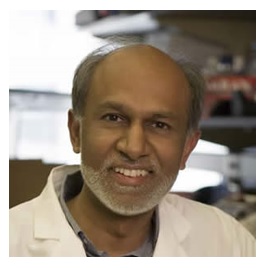
Dr Avindra Nath
USA
Dr. Nath received his MD degree from Christian Medical College in India in 1981 and completed a residency in Neurology from University of Texas Health Science Center in Houston, followed by a fellowship in Multiple Sclerosis and Neurovirology at the same institution and then a fellowship in Neuro-AIDS at NINDS.
He held faculty positions at the University of Manitoba (1990-97) and the University of Kentucky (1997-02).
In 2002, he joined Johns Hopkins University as Professor of Neurology and Director of the Division of Neuroimmunology and Neurological Infections.
He joined NIH in 2011 as the Clinical Director of NINDS, the Director of the Translational Neuroscience Center and Chief of the Section of Infections of the Nervous System.
His research focuses on understanding the pathophysiology of retroviral infections of the nervous system and the development of new diagnostic and therapeutic approaches for these diseases.

Institute for Virology and Immunobiology, University of Wuerzburg
Dr Bhupesh Prusty
Germany
Bhupesh Prusty currently works at the Institute for Virology and Immunobiology, University of Wuerzburg. Bhupesh does research in Microbiology and Virology. His current research focuses on ciHHV-6 reactivation and its clinical consequences.
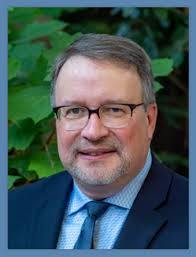
University of Montreal Hospital Research Centre CRCHUM · Biochemistry and molecular medicine
Professor Alain Moreau
Canada
Since October 2000, Dr. Moreau has been Director of the Laboratory of Molecular Genetics of Musculoskeletal Diseases/malformations. His team is interested in the molecular genetics of musculoskeletal diseases in children (scoliosis) and adults (osteoarthritis). Their work mainly focuses on musculoskeletal diseases that affect children (congenital malformations, bone and cartilage tumours), adolescents (idiopathic scoliosis) and adults (osteoarthritis and joint cartilage degeneration). In addition, his team studies the molecular mechanisms involved in the inflammation and regeneration of musculoskeletal tissues. Dr. Moreau is an active member of the Bone and Periodontium Research Center (a consortium of researchers working in the field of bone) set up by McGill University, the American Society of Bone and Mineral Research and the Scoliosis Society of Quebec. He is also the thematic leader of the Molecular Biology and Genetics Axis of the Scoliosis Quebec Network.
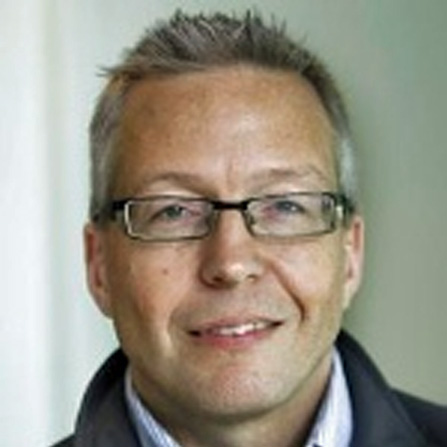
Full Chair Professor in Analytical Chemistry and Neurochemistry at the Department of Chemistry, Uppsala University, Sweden
Professor Jonas Bergquist
Sweden
Professor Begquist has a background as MD, Associate Professor of Clinical Neuroscience , Sahlgrenska University Hospital and the University of Gothenburg. Since 1999 , he has been a researcher in Uppsala, Sweden, and in 2005 was appointed professor of analytical chemistry and neurochemistry at the Department of Chemistry - BMC , Uppsala University. From 2011 he worked also as an adjunct professor of pathology at the University of Utah, Salt Lake City, Utah, USA.
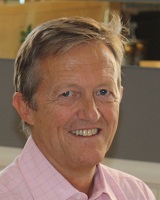
Research Director, Coordinating Research Centre, Bispebjerg and Frederiksberg Hospital, Denmark
Co-chair European ME Research Group
Dr Jesper Mehlsen
Denmark
Dr Jesper Mehlsen graduated as a medical doctor in 1979 and finished his specialist training in 1990.
He has published more than 140 scientific papers in peer reviewed journals, mainly on the autonomic nervous system and more recently
on complex diseases possibly resulting form HPV-vaccination.
For more than 35 years, he has worked clinically and in research with dysfunction of the autonomic nervous system.
Such dysfunction may lead to symptoms from a number of different organs often dominated by diminished control of blood pressure
and heart rate.
Over the past 5 years, he has worked clinically and in research with patients who suspect side effects due to HPV vaccination to
be the cause of a number of symptoms, common to those seen in chronic ME.
Dr Mehlsen is co-chair of the European ME Research Group (EMERG).
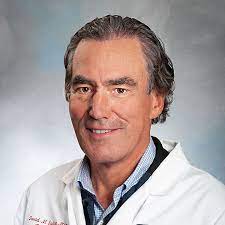
Assistant Professor of Medicine. Institution. Brigham and Women's Hospital
Dr David Systrom
USA
Dr. David M. Systrom is a physician at Brigham and Women's Hospital. He is also an assistant professor of medicine at Harvard Medical School. He received his medical degree from Dartmouth Medical School (now known as Geisel School of Medicine).
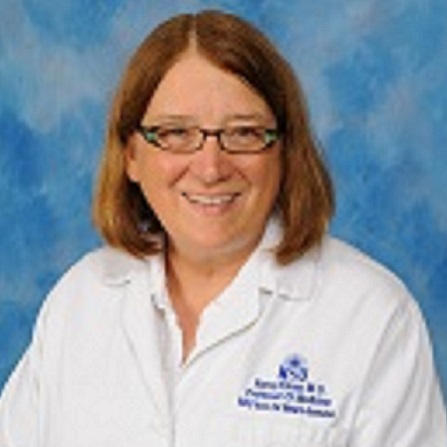
Nova Southeastern University, Florida, USA
Professor Nancy Klimas
USA
Director, Institute for Neuro Immune Medicine, Nova Southeastern University.
Director, Clinical Immunology Research, Miami VAMC
Professor of Medicine, Department of Clinical Immunology, College of Osteopathic Medicine, Nova Southeastern University
Chair, Department of Clinical Immunology, College of Osteopathic Medicine, Nova Southeastern University
Professor Emerita, University of Miami, School of Medicine
n for her research and clinical efforts in multi-symptom disorders, Myalgic Encephalomyelitis/Chronic Fatigue Syndrome (ME/CFS),
War Illness (GWI), Fibromyalgia, and other Neuro Immune Disorders. She is immediate past president of the International Association
for CFS and ME (IACFS/ME), a professional organization of clinicians and investigators, and is also a member of the VA Research Advisory
Committee for GWI, the NIH P2P CFS Committee, and the Institute of Medicine ME/CFS Review Panel. Dr. Klimas has advised three Secretaries
of Health and Human Services, including Kathleen Sabelius, during her repeated service on the Health and Human Services CFS Advisory Committee.
Dr. Klimas has been featured on Good Morning America, in USA Today and the New York Times.
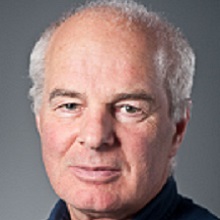
University of Oslo and EMERG
Professor Ola Didrik Saugstad
Norway
Ola Didrik Saugstad is a Norwegian pediatrician and neonatologist, who is internationally recognized for his research on resuscitation of newborn children. Since 1991, he has been Professor of Pediatrics at the University of Oslo and Director of the Department of Pediatric Research at the National Hospital.
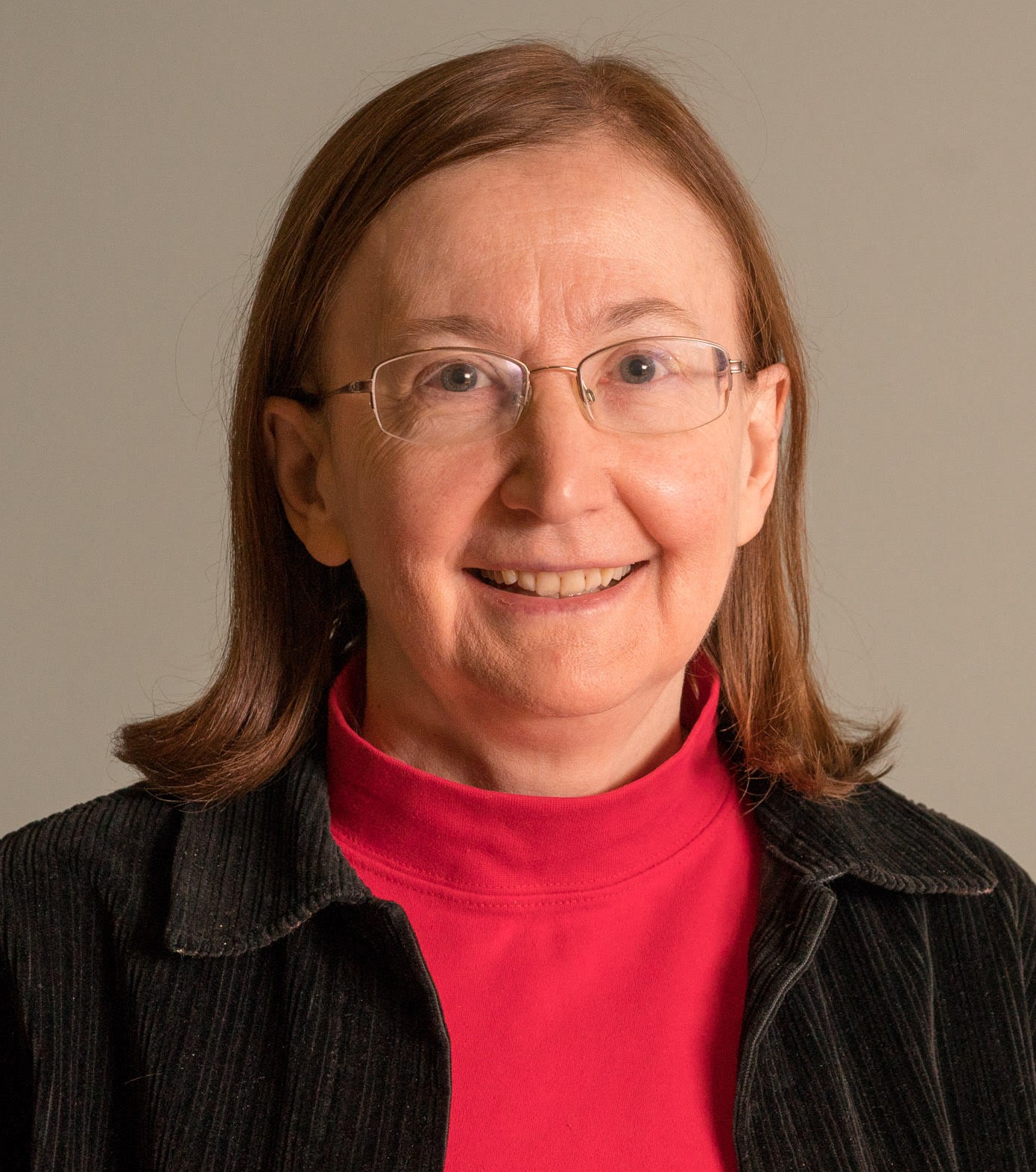
Liberty Hyde Bailey Professor, Department of Molecular Biology and Genetics, Cornell University, New York, USA
Professor Maureen Hanson
USA
Maureen Hanson is Liberty Hyde Bailey Professor in the Department of Molecular Biology and Genetics at Cornell University in Ithaca, NY. Previously she was on the faculty of the Department of Biology at the University of Virginia in Charlottesville and an NIH NRSA postdoctoral fellow at Harvard, where she also completed her Ph.D. degree. While most of her prior research has concerned cell and molecular biology in plant cells, she began a research program on ME/CFS after noting at a 2007 IACFS meeting the paucity of molecular biologists studying the illness. Her lab was part of the 2012 multicenter study organized by Ian Lipkin's group at Columbia University to assess the actual role of XMRV in ME/CFS. Dr. Hanson has a current project to examine the microbiome of ME/CFS patients and controls, in collaboration with Dr. Ruth Ley (Cornell Microbiology) and Susan Levine, M.D. (Manhattan, NY). Dr Levine is also collaborating with Dr. Hanson on an immune cell gene expression project that involves Dr. Fabien Campagne and Dr. Rita Shaknovich at Weill Cornell Medical School in New York City. Dr. Hanson's third project concerns analysis of blood samples from individuals performing a two-day cardiopulmonary exercise test at Ithaca College under the supervision of Dr. Betsy Keller.
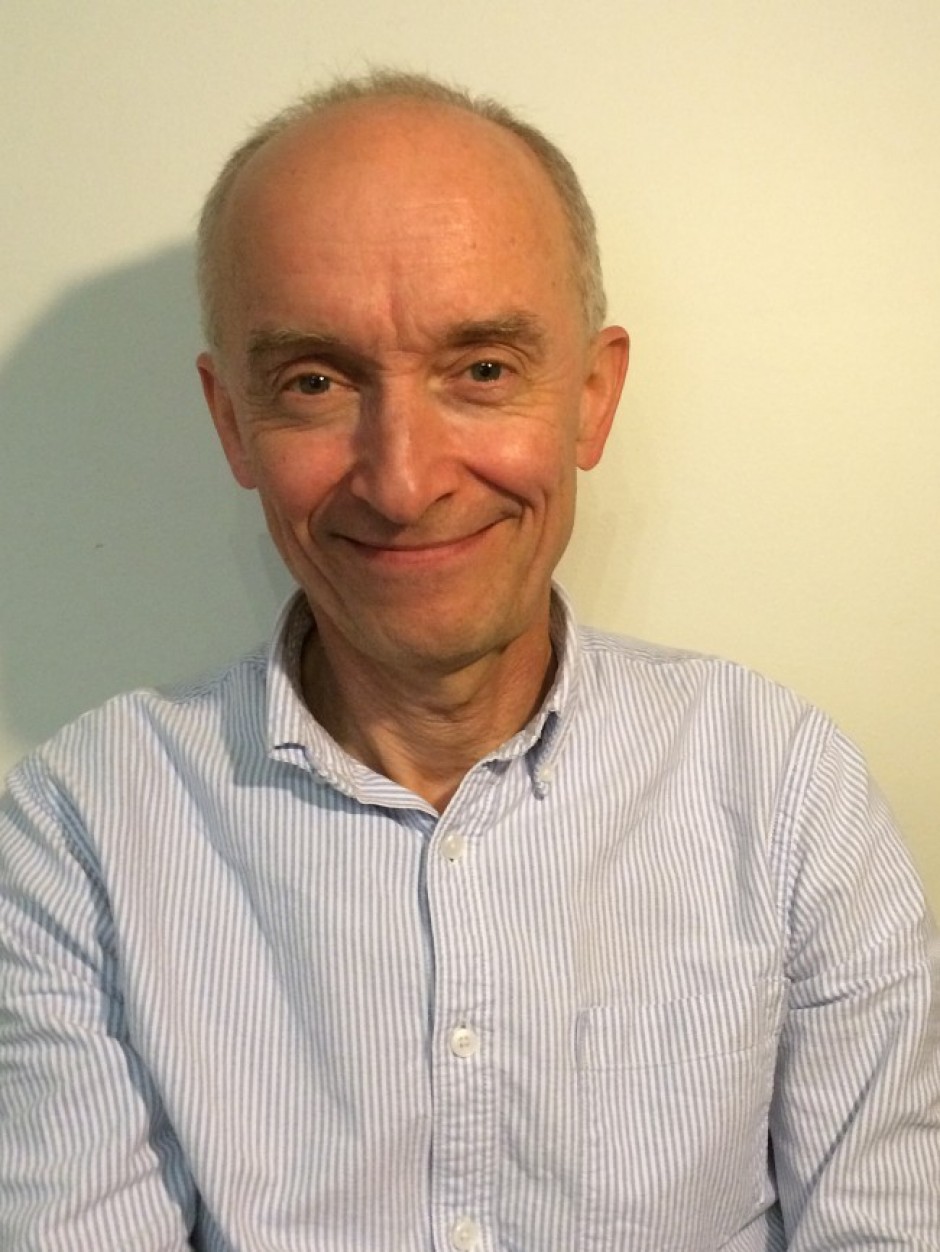
Professor Kristian Sommerfelt
Norway
Kristian Sommerfelt is a paediatrician. He completed his medical degree at the University of Bergen in 1981 and specialist in paediatrics in 1994. Dr degree in 1997 with the theme of premature children and later development. Since 1987, he has worked at the Children's Clinic (now the Children's and Adolescent Clinic) at Haukeland University Hospital, now as senior physician at the section for pediatric neurology and habilitation. Kristian has adjunct position as professor at the Department of Clinical Medicine 2, University of Bergen. He specialises in headaches, epilepsy and ME/CFS, but has broad experience in the entire field of child neurology. For the past 12 years, he has had a special interest in children and young people with ME/CFS, both directly with patient work and in research. He is particularly concerned with investigation, diagnosis and the transfer of knowledge to the first-line service and school. He has broad scientific experience with articles in international journals and authorship of chapters in several medical textbooks. He is a member of the European ME Research Group (EMERG) and European ME Clinicians Council (EMECC).
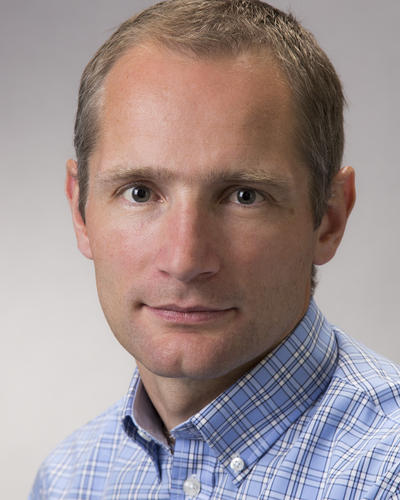
Institute for Biomedicine , Tronstad Lab, Bergen, Norway
Professor Karl Johan Tronstad
Norway
Prof. Tronstad completed his graduate studies in biochemistry at the University of Bergen (UiB) in 2002.
As postdoc at the Haukeland University Hospital, he studied bioactive compounds with the potential to modulate mitochondrial
functions in cancer cells. In 2005 he was recruited to the Department of Biomedicine, UiB, where he started his research group
to investigate metabolism and mitochondrial physiology. His laboratory seeks to better our understanding of how defective
mitochondrial homeostasis may disturb cell physiology, and how this may be involved in mechanisms of cancer and
Myalgic Encephalomyelitis/Chronic Fatigue Syndrome (ME/CFS).
The Tronstad Lab investigates cell metabolism and mitochondrial biology.
Specialisms:
Metabolism, Cell biology, Mitochondria, Biochemistry
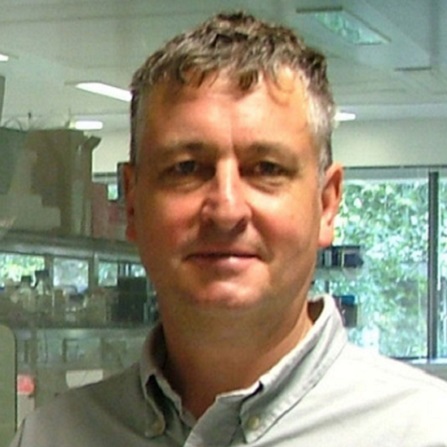
Professor Tom Wileman
USA
Tom Wileman took his first degree at the London School of Pharmacy, now part of University College. This was followed by a PhD at John Moore’s University Liverpool where he gained a keen interest in cell biology and immunology. A postdoctoral fellowship followed at Washington University in St Louis to study endocytosis and the macrophage mannose receptor with Philip Stahl. In 1986 he moved to the Dana Farber Cancer Institute at Harvard Medical School to work with Cox Terhorst cloning genes for the signaling complex of the T-cell antigen receptor. He was appointed to Assistant Professor at Harvard Medical School in 1991 and performed some of the first experiments on T-cell antigen receptor assembly and ER-stress related protein degradation. In 1994 he returned to the UK to the Institute for Animal Health (The Pirbright Institute, UK) as Head of Immunology to study how viruses such as foot and mouth disease virus and African swine fever virus use cellular organelles to facilitate replication and how this affects immune responses. In 2005 he moved to UEA where his lab studies how viruses activate autophagy during cell entry and replication.

Dr Wenzhong Xiao
USA
Dr. Xiao is assistant professor of Bioinformatics at Harvard Medical School and director of the Inflammation & Metabolism Computational Center at Massachusetts General Hospital. He also leads a Computational Genomics Group at Stanford Genome Technology Center. He holds a doctorate degree in chemistry and structural biology from University of California at Berkeley and a master’s degree in statistics
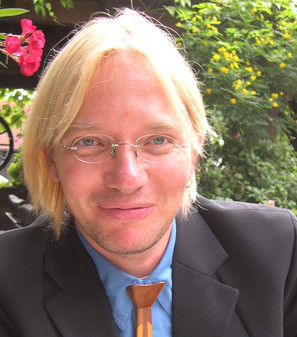
Dr Lutz Schomburg
Germany
Prof. Dr. Lutz Schomburg received his training in biochemistry at the University of Hanover, Germany. He completed internships at the Max Planck Institute for Biochemistry in Munich, the Waite Agricultural Research Institute, Adelaide, Australia, and King's College London, UK. He worked at the Max Planck Institute for Experimental Endocrinology in Hannover, Germany, and received his PhD in 1994. As a postdoctoral fellow, he worked at Brigham and Women's Hospital, Harvard Medical School, Boston, USA, with Prof. William W. Chin and at Julius Maximilians University, Würzburg, Germany, with Prof. Josef Köhrle. He is currently President of the International Society for Selenium Research and Deputy Director of the Institute for Experimental Endocrinology at Charité Universitätsmedizin Berlin.

Associate Professor Julia Oh
USA
Postdoc, National Human Genome Research Institute, National Institutes of Health
Ph.D., Stanford University
B.A., Harvard University
Read more
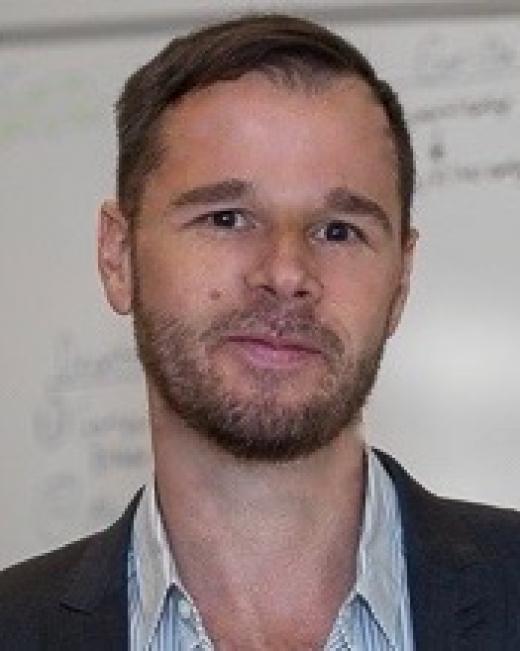
Associate Professor Brent Williams
USA
Brent L. Williams, PhD, is an Assistant Professor in the Department of Clinical Pathology and Cell Biology at Columbia University.
Dr. William’s research focuses on the role of the microbiome in human health and disease.
The human body harbors ten times as many microbial cells as human cells, and these complex, symbiotic microbial
communities play a fundamental physiological role in maintaining human health through various mechanisms relating to digestion, metabolism,
immunity, protection from infections, and development.
Dr. Williams applies state-of-the-art sequencing and computational techniques to gain
mechanistic insights into how disruption of the human symbiotic microbial consortium contributes to disturbed host-microbe relationships and
development of pathophysiological states.
His research relating to these topics is broad in scope ranging from investigations into the role of the microbiome
in neurodevelopment and autism; mechanisms by which microbial metabolites influence epigenetic changes in colorectal cancer; identification of vaginal
microbial community states that contribute to inflammation, adverse pregnancy outcomes and HIV risk; and evolutionary factors governing the structure of
our microbiome through investigation of our closest living primate relatives.
Read more
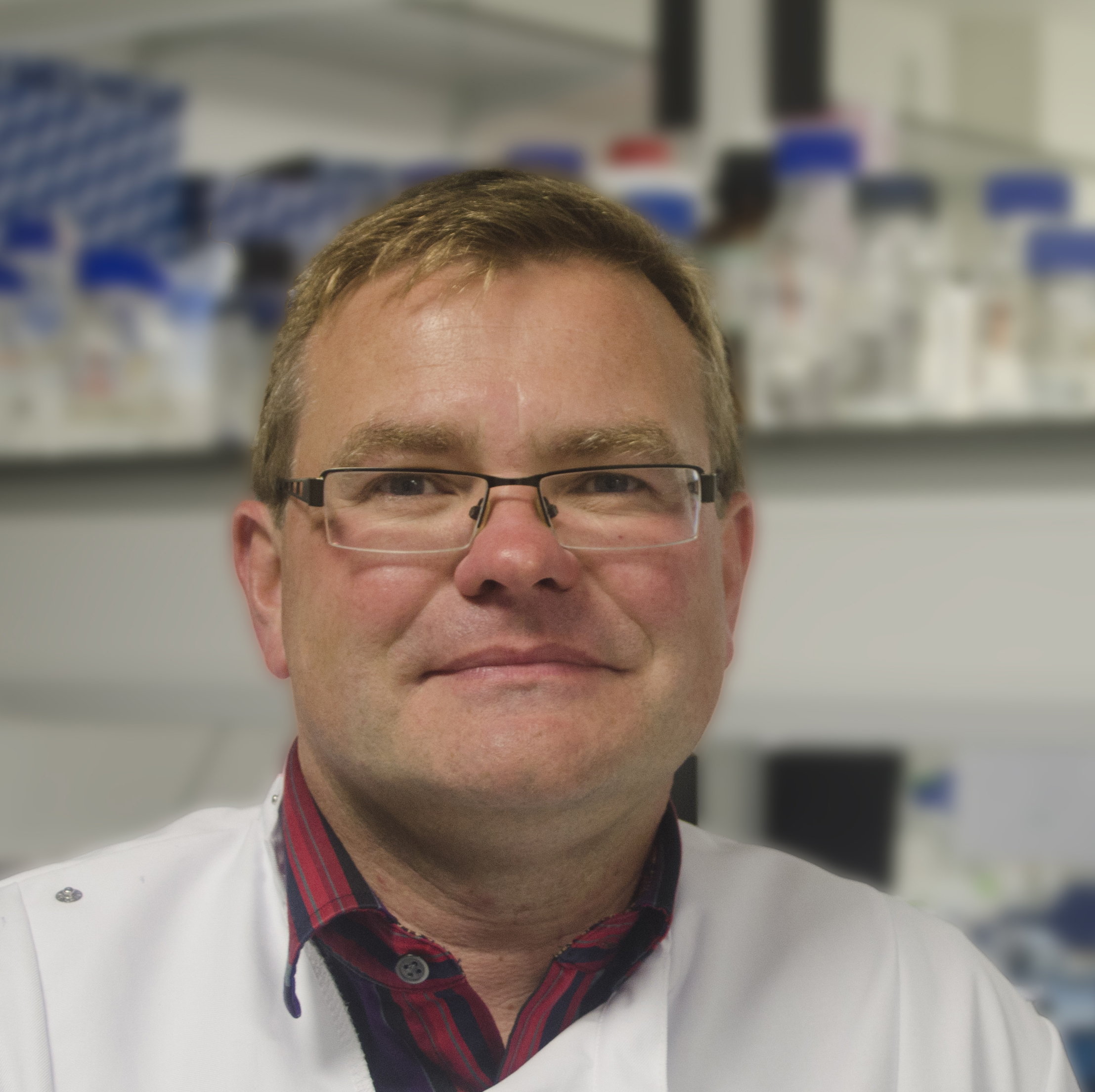
Professor James Stewart
Chair of Molecular Virology, Infection Biology & Microbiomes
International renounded in the field of virus-host interactions he trained as a molecular biologist,
applying molecular techniques to study virus/host interactions, specifically the immune response.
A large part of his career has been spent studying pathogenesis and virus-host interactions, with a particular focus on the herpesvirus family.
Established the link between active EBV infection and idiopathic pulmonary fibrosis (IPF) and showed that this a consequence of the normal biology of this group of viruses.
With Tony Nash, developed murine gammaherpesvirus in mice as a means of studying authentic host-virus interactions, exploiting the power of virus reverse genetics and KO mouse technology.
More recently research has moved to focus on virus-host interactions in the respiratory tract, using other respiratory pathogens such as influenza A virus and RSV. Developed an integrative toolkit and pathway with which to do this using conventional and molecular techniques to analyse the course of virus infection combined with big data techniques and informatics to relate the function of viral determinants with host defence responses. The ultimate aim is to translate this into novel interventions and vaccines.
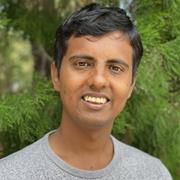
Dr Kiran Thapaliya
Australia
Research Fellow in the area of Neuroimaging with the National Centre for Neuroimmunology and Emerging Diseases (NCNED).
Main research interest lies in the development of medical imaging methods for the direct in vivo mapping of tissue microstructure in
Myalgic encephalomyelitis/chronic fatigue syndrome (ME/CFS) and Long COVID.
Kiran's research focuses on understanding how changes in tissue microstructure influence MRI signals and the
development of new neuroimaging methods to identify biomarkers for ME/CFS and Long COVID.
Read more
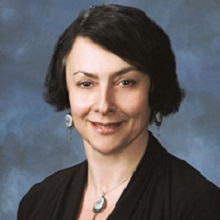
Professor Lubov Nathanson
USA
Dr. Lubov Nathanson is an experienced, versatile and multidisciplinary trained scientist with over 20 years of work experience in basic
and translational genomics and proteomics research.
She has a combined expertise in bioinformatics, molecular biology, biochemistry and systems biology.
As an Associate Professor for the Institute for Neuro-Immune Medicine, her work involves analysis of gene expression data of microarrays
and RNA-seq experiments, analyzing systems biology including metabolic pathways and gene ontology,
building gene interaction networks, creating custom pathways, and searching for upstream and downstream gene interactions.
Additionally, she is an Adjunct Professor of the Master's of Science in Nutrition Program in the Dr. Kiran C. Patel College
of Osteopathic Medicine and an Adjunct Professor of the Math, Science, and Technology Division in the Halmos College of Natural
Sciences and Oceanography.
Read more
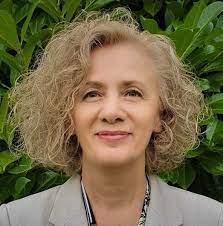
Professor Hatice Tankisi
Denmark
Department of Clinical Medicine - Department of Clinical Neurophysiology
Hatice Tankisi is a consultant in Clinical Neurophysiology at Aarhus University Hospital and professor at Aarhus University, Denmark. She is serving as the secretary and treasurer of ExCo Europe-Middle East-Africa Chapter, International Federation of Clinical Neurophysiology (EMEAC-IFCN) since 2018 and Co-chair of the Clinical Neurophysiology Panel, European Academy of Neurology (EAN) since 2020.
She was born and studied medicine and trained as a neurologist in Turkey and then moved to Denmark in 2000, trained as a neurophysiologist and did her PhD in Denmark. Her main research interests are peripheral nerve, muscle and cortical excitability tests with threshold tracking and motor unit number estimation methods for diagnosis and understanding disease pathophysiology in neurological disorders particularly ALS and polyneuropathy. She has more than 90 peer-reviewed papers and 6 book chapters. Hatice Tankisi has been a member of the European Multicenter EMG network, ESTEEM since 2000 and is serving as the leader of ESTEEM since 2020. She is also a member of the International Diabetic Neuropathy Consortium (IDNC), multicentre IMI-PainCare project and the QTMS Research Group.
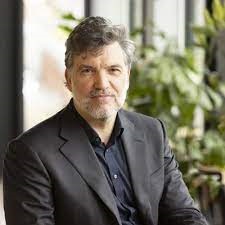
Associate Professor Jos Bosch
Netherlands
In 2012 he was appointed associate professor in the Department of Psychology, section Clinical Psychology.
His research investigates the psychobiology of medical disorders, with the aim to understand and mitigate the impact of disease.
His dual expertise in psychology and biology allows him to approach this topic in a genuinely interdisciplinary manner, by integrating methods and concepts from both fields, and apply these to experimental laboratory studies, clinical investigations, and epidemiological analyses. More recently hsi work has expanded to include Data Science and Artificial Intelligence (AI) as a source of novel approaches to the analysis and modification of human biology and behaviour. The latter program of research is funded by two H2020 consortium grants, of which he isa lead and a coordinator, and involves intensive collaborations with groups accross continental Europe, the UK, and the US.
Since 2019 he became Associate Editor of Health Psychology Review, having previously acted as associate/senior editor for Brain, Behavior & Immunity (2011-2014), Psychological Bulletin (2010-2013), and Health Psychology (2010-2015).
In 2018 he was appointed Program Leader of the AMC/VUmc research institute ‘Amsterdam Public Health' (APH), Divsion of Mental Health (https://www.amsterdamumc.org/research/institutes/amsterdam-public-health.htm). In 2020 I was reappointed for 2 more years.
In 2023 Jos was awarded a grant of more than seven million euros to commence new biomedical research into ME/CFS.
Further reading:
Amsterdam UMC leads international consortium in the search for treatment for ME/CFS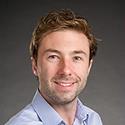
Assistant Professor Bradlee Heckman
University of South Florida, Health, Neuroscience Institute, Byrd Alzheimer's Center, USA
Bradlee L. Heckmann is an American biologist and neuroimmunologist who is currently an investigator at the Byrd Alzheimer's Center and USF Health Neuroscience Institute and assistant professor in molecular medicine at the USF Health Morsani College of Medicine. Prior to his faculty appointment, Heckmann held the John H. Sununu Endowed Fellowship[1] in immunology at St. Jude Children's Research Hospital. Heckmann's research is focused on understanding the regulation of inflammatory processes in the central nervous system, with particular emphasis on neurodegenerative diseases including Alzheimer's Disease[2] and the role of the autophagy machinery in this setting. https://en.wikipedia.org/wiki/Bradlee_Heckmann
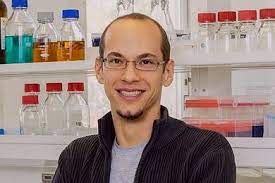
Dr Thomas Vogl
Austria
Group Leader, Medical University of Vienna
Thomas Vogl studied Molecular Microbiology at the University of Graz and completed his PhD in "Molecular Biomedical Sciences and Biotechnology’" at Graz University of Technology. International placements have taken him to Queensland University of Technology (Australia) and the Weizman Institute of Science (Israel). Most recently, he worked as a senior postdoc at the Diagnostics & Research Center for Molecular BioMedicine at MedUni Graz. Since August 2022, he has been leading a research group at the Center for Cancer Research at MedUni Vienna.
Dr. Thomas Vogl and his multidisciplinary team of molecular biologists, biochemists, and bioinformaticians are investigating which microbial and tumor factors are crucial for successful cancer therapies. Dr. Vogl's expertise lies in the combination of biological experiments with computer-assisted analyses. In this context, the immune system is analyzed in the laboratory using blood samples from patients alongside novel high-throughput methods.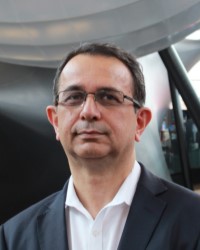
Professor Qasim Aziz
UK
Professor Aziz after completing his undergraduate medical training in his native Pakistan he came to the UK in 1988 for higher medical training. After completing core medical training in Manchester, he started his research career at the University of Manchester as a Digestive Disorders Foundation (currently GUTS UK) clinical research fellow and obtained his PhD in 1996. He held posts of Lecturer, Senior Lecturer, and Professor of Gastroenterology at the University of Manchester, and is now Professor of Neurogastroenterology and Director of The Wingate Institute of Neurogastroenterology at Barts and The London School of Medicine and Dentistry at Queen Mary, University of London.
He has previously been a Medical Research Council (MRC) Clinician Scientist and has held the MRC Career Development Award. Throughout his career has held numerous prestigious research grants. His research interests are focused on understanding the neurophysiological basis of human gut sensory and motor function in health and disease and he has pioneered the use of a number of neurophysiological techniques to study the human brain gut axis. He is a keen educator for undergraduate and post graduate students and a frequent speaker at national and international conferences.
Professor Aziz has obtained national and international awards for his research the two most important being the British Society of Gastroenterology Research Gold Medal and the American Gastroenterology Association, Janssen Award for Basic and Clinical Research. He has published numerous original articles in reputed medical journals such as Nature Medicine, Nature Neuroscience, Lancet and Gastroenterology. He has held the position of Chairman, Neurogastroenterology and Motility Section of the British Society of Gastroenterology, Executive committee member of the European Society of Neurogastroenterology and Motility and member of the United European Gastroenterology Federation Education Committee. He has been the co-lead for World Health Organisations ICD-11 coding for visceral pain and past Chair of the Abdominal and Pelvic Pain Special Interest Group of the International Society for the Study of Pain. He has been a member of Rome III, Rome IV and now Rome V Committees for development of diagnostic criteria for Disorders of Brain Gut Interaction. He has until recently been the gastroenterology speciality lead for North Thames Clinical Research Network and is the current president of the European Society of Neurogastroenterology and Motility.
From https://www.qmul.ac.uk/blizard/all-staff/profiles/qasim-aziz.html
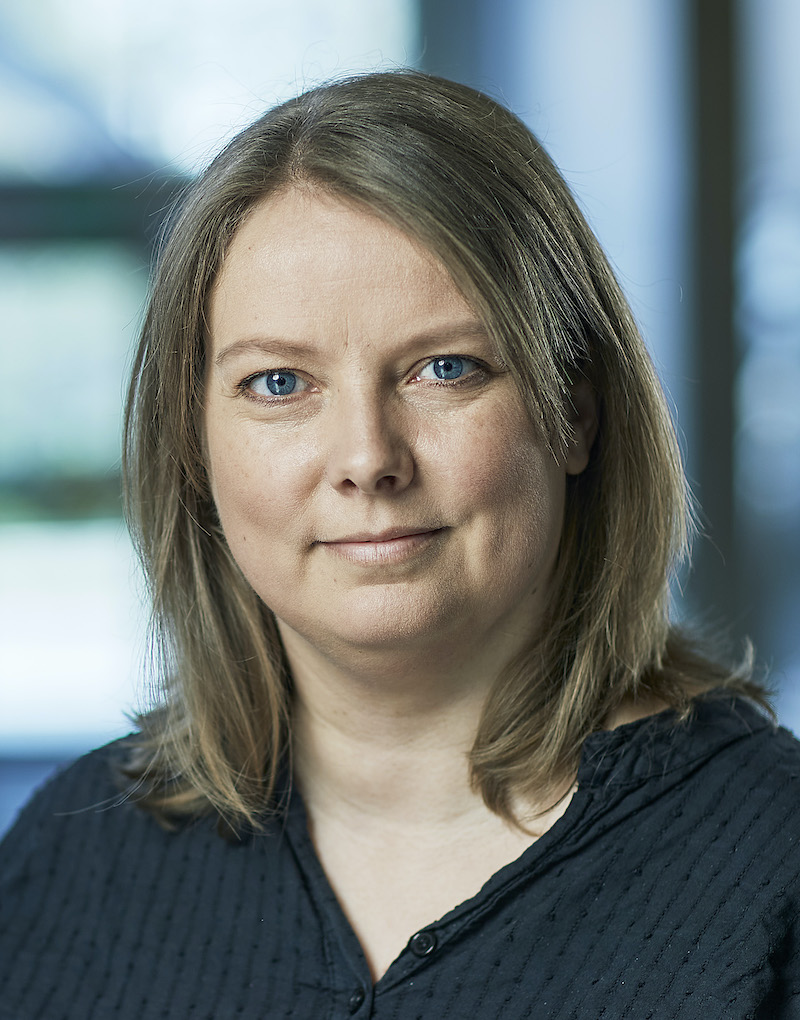
Dr Marte Viken
Department of Medical Genetics,
Oslo University Hospital, Norway
European ME Research Group

Dr Tamas Korcsmaros
Department of Medical Genetics,
Oslo University Hospital, Norway
European ME Research Group
Tamás Korcsmáros started his research work as a high-school student in a biochemistry laboratory and for five years he worked on the experimental analysis of redox adaptation. He graduated as a molecular biologist (Eotvos Lorand University, Budapest, Hungary) and as a PhD student developed a gap-filling signalling network database, SignaLink. In Budapest, he established the NetBiol - Network Biology group, which focuses on signalling and regulatory networks. The group has been developing novel databases and web-services to meet key scientific community needs.
In March 2014, Tamás moved to Norwich and works as a Computational Biology Fellow at the Earlham Institute and Quadram Institute Bioscience (QIB). His multi-disciplinary group focussed on combining computational and experimental approaches to predict, analyse and validate host-microbe interactions in the gut, especially in relation to the regulation of autophagy by microbes and upon disease conditions such as inflammatory bowel disease and cancer. Tamás also took major part in the organisation of eight international conferences (each with more than 1000 participants), he is the co-founder of two network analysis companies and coordinated 3 innovation grant programs. Since 2001, Tamás has been participating as a volunteer in Hungarian and international talent support organizations. He is currently the Chairman of the Research Student Foundation supporting 5000 high-school research students.
Tamas is now Senior Lecturer in Intestinal Epithelial Biology at Imperial College London.
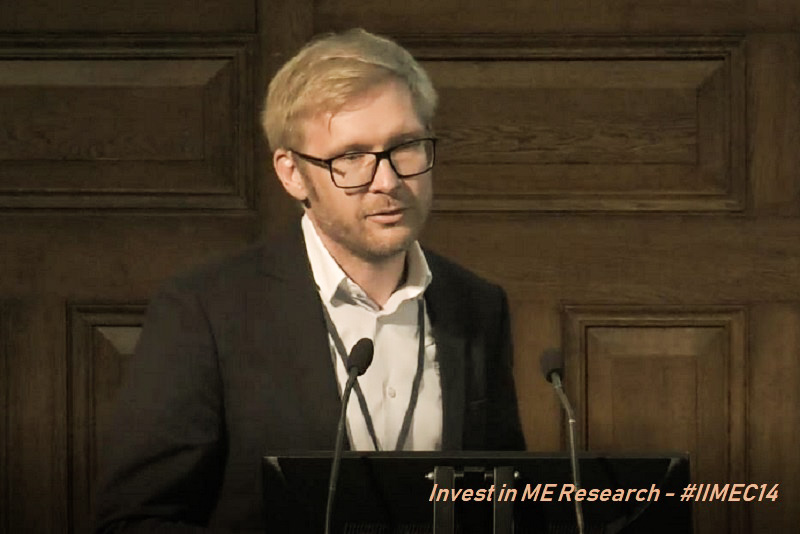
Dr David Andersson
Reader In Physiology, Kings College London, UK
David Andersson has been at the Wolfson Centre for Age-Related Diseases in London since 2011.
Research in David Andersson’s laboratory is centred on sensory transduction mechanisms
His research is focused on how sensory neurons control pain and nociception. He is particularly interested in two areas that we are convinced will improve understanding of acute and chronic pain:
1) His team is unravelling the mechanisms responsible for chronic pain in fibromyalgia, complex regional pain syndrome (CRPS), and pain caused by the chemotherapeutic drug oxaliplatin.
2) They are exploring interactions between TRP ion channels and neuronal G-protein coupled receptors and we have demonstrated that these interactions can exert powerful influence over the activity of sensory neurons, thereby controlling pain.
In 2009, he was awarded the first KCL/London Law Trust Medal and fellowship (now the Professor Anthony Mellows Medal).
Key publications:
Andersson et al., 2011. TRPA1 mediates spinal antinociception induced by acetaminophen and the cannabinoid Delta(9)-tetrahydrocannabiorcol. Nature Communications. Peier et al., 2002. A heat-sensitive TRP channel expressed in keratinocytes. Science. Zygmunt et al., 1999. Vanilloid receptors on sensory nerves mediate the vasodilator action of anandamide. Nature.
Key collaborators:
Professor Stuart Bevan, King's College London
Dr Andreas Goebel, University of Liverpool
Professor Camilla Svensson, Karolinska Institute
Dr Emanuele Sher, Eli Lilly
More information:
https://www.kcl.ac.uk/people/david-andersson

Presenter to be announced
Details will be announced shortly.

Presenter to be confirmed
Details will be announced shortly.
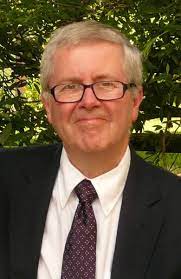
Dr Robert Phair
Chief Scientific Officer, Integrative Bioinformatics, Inc., USA
Dr. Robert Phair, a systems biologist whose Ph.D. is in Physiology, is an internationally known expert in the area of kinetic modeling, with over 35 years of experience in the modeling of complex biological systems. He started his academic life with a degree in Electrical Engineering at MIT with the intention to apply engineering analysis to complex biological systems. He was a professor at The Johns Hopkins University School of Medicine for 16 years before co-founding Integrative Bioinformatics, Inc (IBI), a scientific consultancy in Silicon Valley, with a focus on cellular and molecular systems,where a systematic approach has been developed to model biological systems that allows effective testing of complex hypotheses against available experimental data.
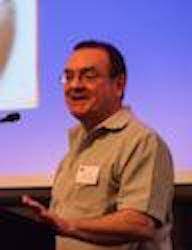
Dr Robert Phair
Professor of Neuroscience, Institute of Ophthalmology, Faculty of Brain Sciences, UCL, UK
Professor Jeffery's lab works on ageing and age related retinal disease in humans and animal models and
asseses how the impact of these can be avoided using a range of cellular, molecular and optical techniques.
They examine and manipulate mechanisms of inflammation, mitochondrial decline, cell death and extra-cellular deposition including that of
amyloid beta, and map these retinal changes onto shifts in visual performance, linking structure with function in normal ageing and disease.
The lab has basic scientists, clinical ophthalmologists and optometrists and translates studies on cellular mechanisms in model systems
into clinical trials for inflammatory diseases and macular degeneration at Moorfields Eye Hospital.

Dr Marte Viken
Department of Medical Genetics,
Oslo University Hospital, Norway
European ME Research Group
BRMEC12 AGENDA
The Invest in ME Research Biomedical Research into ME Colloquium 12 (BRMEC12) Day 1 began on Wednesday 31st May 2023.
Click below to expand/contract and show each day of the Colloquium
The 12th Biomedical Research into ME Colloquium was possibly the best yet of the series of colloquia that were started in 2011, five years after we initiated the international ME conferences.
This year Invest in ME Research started late in preparations, unsure of the response from researchers following easing of covid restrictions. However, the team managed to bring together a good programme of interesting research and used the expertise of the European ME Research Group (EMERG) to chair sessions and bring in new expertise alongside the existing and increasing family of researchers that the charity has developed.
There was more interest from researchers than ever - despite this being our first to meet in person since before the pandemic began - justifying resources used/commitment given to make it work.
This year also, partly as an aid to help social distancing at the events, we used a new venue which had the added benefit of giving greater possibilities to improve and develop international collaboration amongst researchers, one of the charity's continuing and abiding objectives.
In this we feel we were very successful.
Many new collaborations were formed - one of the advantages of focusing efforts on getting the right people together in a productive atmosphere.
Many of these collaborations may not come to fruition for a while but they were, nevertheless, generated by the ability to meet in pleasant surroundings and inspired with the atmosphere of this international meeting.
As one good friend and BRMEC12 delegate commented -
‘the agenda, speakers you chose, networking you encouraged & every detail helped us all meet new collaborators & have more hope that things are getting closer to answers’
Amongst some of the invitations to attend from the charity there was included one to the Norwegian Directorate of Health (Norges Helsedirektoratet). The situation for ME in Norway should be the best in the world but there are continuing issues with flawed policies being promoted.
So, we suggested to one of the EMERG researchers in Norway if we could assist by inviting such an organisation to the Colloquium as our guests to hear of the research that was being conducted and to mix with researchers.
Eventually we had four representatives from helsedirektoratet attending and we hope that this will prove beneficial to all people with ME and their carers in Norway, and ultimately to all patients in Europe.
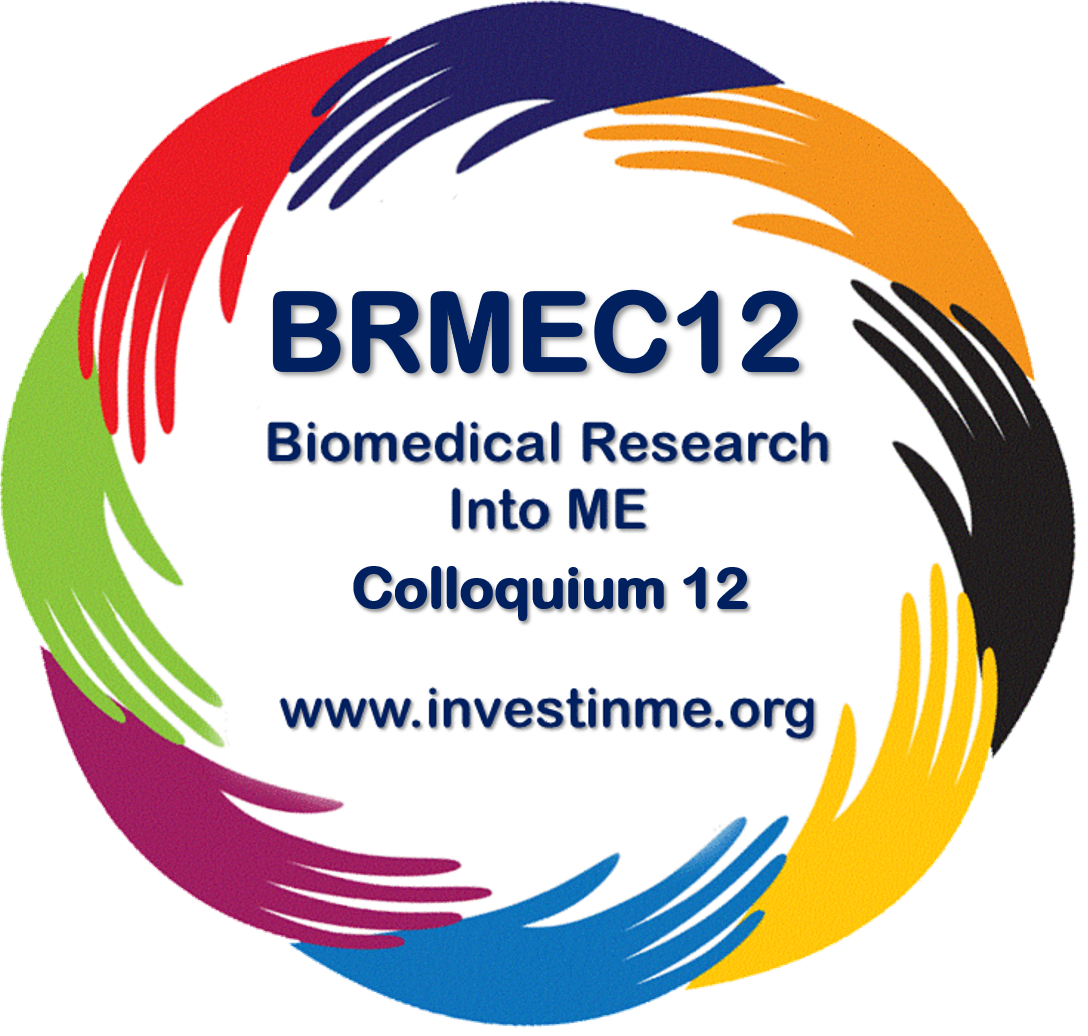
ME and Long Covid: Emerging insights in mechanisms and complexity of post-viral fatigue
The 11th International Biomedical Research into ME Research Colloquium took place on 18 - 19 May 2022. With developments around research into Long Covid and with the similarities of some symptoms to those experienced by people with ME then this topic will be also included as a central component of the agenda and a number of hypotheses will be proposed concerning ME and long covid - with a focus on the aetiology of the disease.
ME and Long Covid: Emerging insights in mechanisms and complexity of post-viral fatigue
The 11th International Biomedical Research into ME Research Colloquium took place on 18 - 19 May 2022. With developments around research into Long Covid and with the similarities of some symptoms to those experienced by people with ME then this topic will be also included as a central component of the agenda and a number of hypotheses will be proposed concerning ME and long covid - with a focus on the aetiology of the disease.
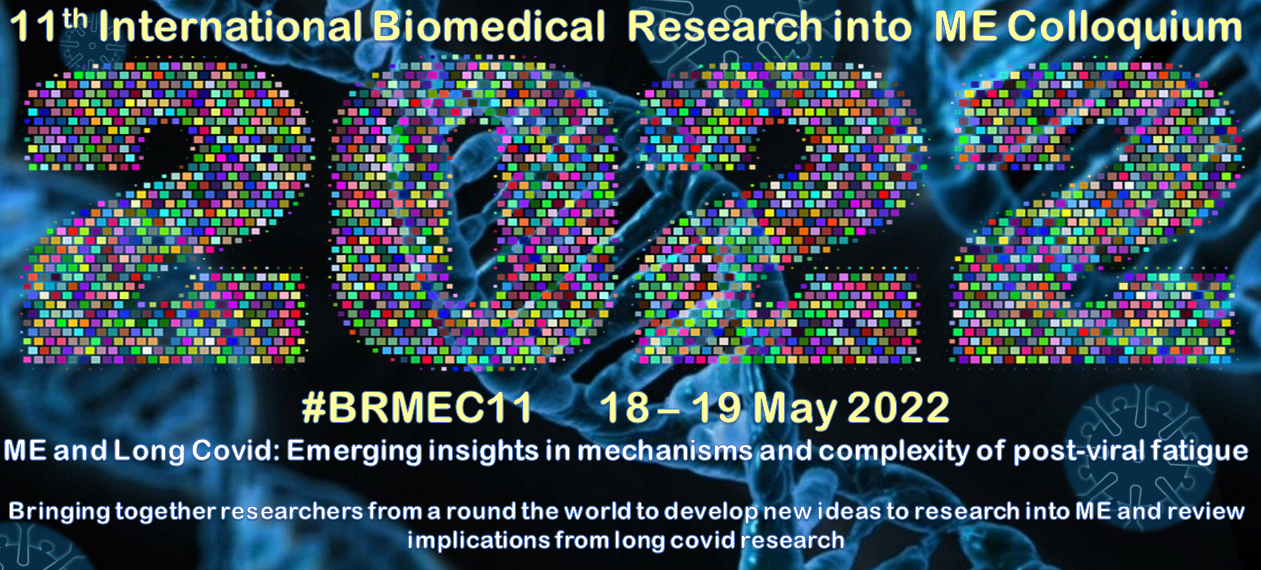
Click below to expand and show each day of the Colloquium
All times in CET (Central European Time)
Day 1 - 18 May 2022
DAY 2 - 19 May 2022
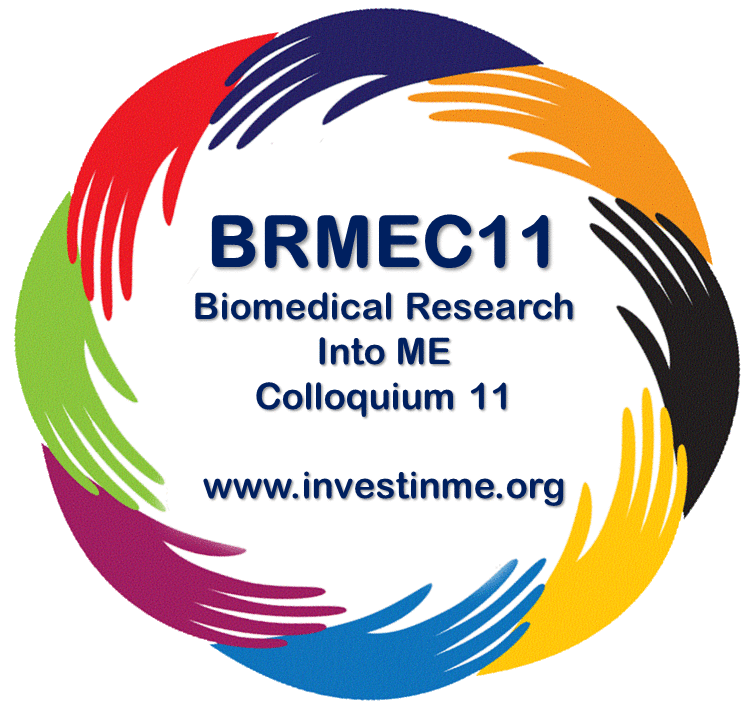
----------------
IIMER BRMEC10 RESEARCH MEETING LONDON, 2021
2 - 3 June 2021
The Invest in ME Research Biomedical Research into ME Colloquium 10 (BRMEC10) took place in London over two days.
Due to the pandemic this Colloquium was conducted using Zoom.
The European ME Research Group (EMERG) was tasked with producing an agenda
appropriate for this environment and in order to move things on with research into ME while the
pandemic limited in-person meetings.
We again had representation from National Institutes of Health (NIH), Centers for Disease Control (CDC), USA, Canada,
Europe and Australasia.
IIMER BRMEC10 RESEARCH MEETING LONDON, 2021
2 - 3 June 2021
In replacing the annual London event with a a virtual event we used
the different opportunities presented by this format to bring forward new ideas to stimulate discussions between
researchers.
Every Colloquium has aimed to improve understanding, collaboration and cooperation.
With developments around research into Long Covid and with the similarities of some symptoms to those experienced by people with ME then this topic was also added to the agenda.
For BRMEC10 a new approach and a new format to the meeting was created in order to try to make a step-change in thinking and aid everyone researching ME. Working with Invest in ME Research the European ME Research Group (EMERG) were tasked with forming the agenda.
A number of hypotheses were proposed concerning ME - all leading back to the aetiology of the disease. This was augmented by referencing long covid. The hypotheses were discussed by researchers.
A paper from one of these sessions was published - 'What Causes ME/CFS: The Role of the Dysfunctional Immune System and Viral Infections' - Click here
The BRMEC10 Colloquium also gave rise to discussions on outcome measures for research into ME. Toegether with the NIH and the European ME Research Group a core group of researchers formed a working group to discuss outcome measures and this working group would meet after the colloquium.
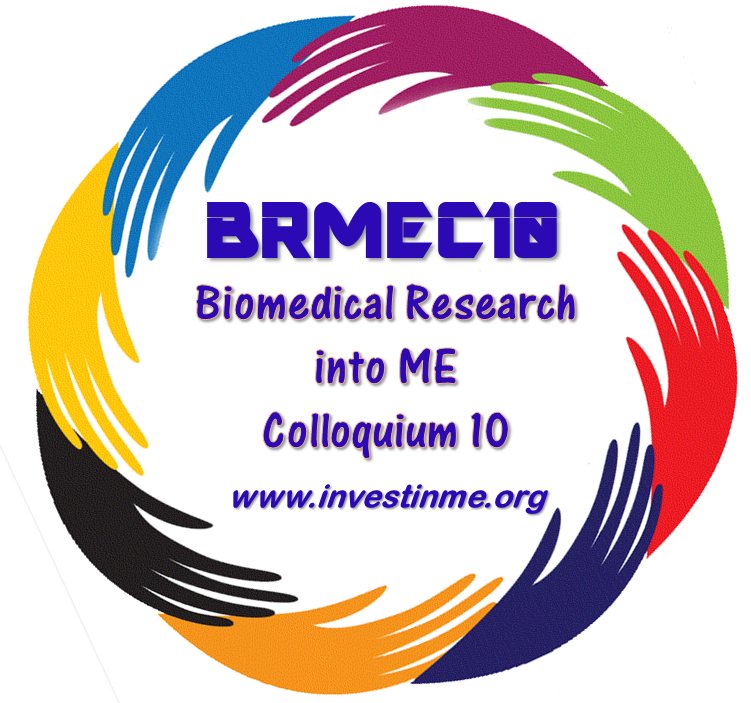
Colloquium Videos
We hope to add Colloquium videos to the site soon.
Read more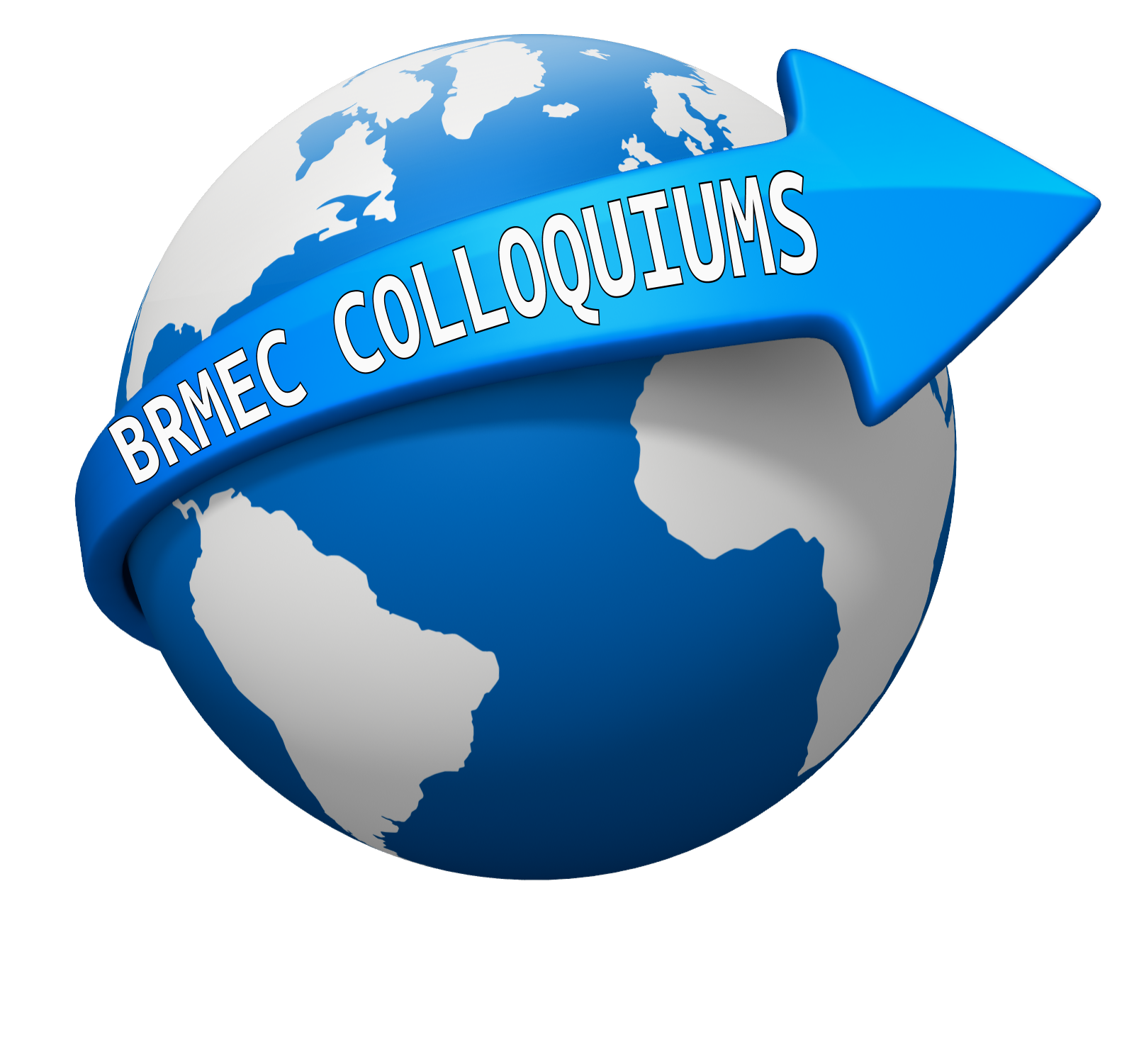

IIMER BRMEC9 RESEARCH MEETING LONDON, 2019
29 - 30 May 2019
The Invest in ME Research Biomedical Research into ME Colloquium 10 (BRMEC9) took place in London over two days.
Due to the pandemic this Colloquium was conducted using Zoom.
The European ME Research Group (EMERG) was tasked with producing an agenda appropriate for this environment and in order to move things on with research into ME while the pandemic limited in-person meetings.
We again had representation from National Institutes of Health (NIH), Centers for Disease Control (CDC), USA, Canada,
Europe and Australasia.
In replacing the annual London event with a a virtual event we are using the different opportunities presented by this format to bring forward new ideas to stimulate discussions between researchers.
Every Colloquium has aimed to improve understanding, collaboration and cooperation.
With developments around research into Long Covid and with the similarities of some symptoms to those experienced by
people with ME then this topic will be also added to the agenda.
For BRMEC9 we will present a new approach and a new format to the meeting in order to try to make a step-change in thinking and aid everyone researching ME.
Working with Invest in ME Research will be the European ME Research Group (EMERG) who have been tasked with forming the agenda.
A number of hypotheses will be proposed concerning ME - all leading back to the aetiology of the disease. This will be augmented by reference to long covid.
The hypotheses will be discussed by researchers.
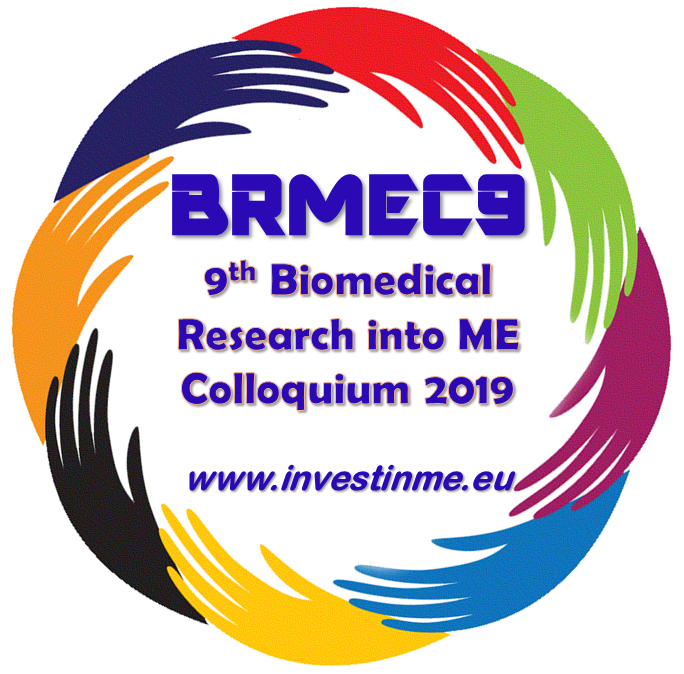
BRMEC9 AGENDA
Click below to expand and show each day of the Colloquium
BRMEC9 Colloquium Agenda - Day 1
| Session | Presenter(s) | ||||
|---|---|---|---|---|---|
| Arrival Refreshments | |||||
| Welcome to the BRMEC9 |
|
||||
| Clinical Research/ Clinical Trials/Treatment Experiences | |||||
| Impact of Co-morbid Conditions on ME/CFS: Information from complementary data sources |
|
||||
| NIH Strategy Update |
|
||||
| Harvard Plans for Clinical Research for ME |
|
||||
| Clinical Collaboration in Europe – A Bridge to Research |
|
||||
| Catecholamine Replacement Therapy (CRT) in ME |
|
||||
| Cyclophosphamide intervention in ME/CFS and associations to molecular markers |
|
||||
| HLA associations in ME |
|
||||
| Epstein-Barr virus induced ME/CFS |
|
||||
| Chaired Discussion - Clinical Research/ Clinical Trials/Treatment Experiences | |||||
| Systems Biology | |||||
| Establishing new mechanistic and diagnostic paradigms for ME/CFS |
|
||||
| Severely Ill Patient Study of ME/CFS |
|
||||
| Identifying Genetic Predisposition, and Genomic Dysfunction of Immune system, Hormone and Metabolic Regulation in ME/CFS for Improved Diagnostics and Treatment Avenues |
|
||||
| The systems-level immunology of ME/CFS, and activation of the inflammatory reflex |
|
||||
| Sex-specific differences in miRNA expression in ME/CFS |
|
||||
| Chaired Discussion | |||||
| Metabolomics | |||||
| Immunocellular bioenergetics in Danish females with ME |
|
||||
| Targeted metabolic profiling and associations to clinical data in ME |
|
||||
| Untargeted metabolic profiling and associations to clinical data in ME |
|
||||
| Longitudinal Metabolomics Research into ME/CFS (tbc) |
|
||||
| Chaired Discussion - Metabolomics | |||||
BRMEC9 Colloquium Agenda - Day 2
| Session | Presenter(s) | ||||
|---|---|---|---|---|---|
| Arrival Refreshments | |||||
| Welcome to Day 2 BRMEC9 |
|
||||
| Microbiome/Virome | |||||
| Are bacteria good for your brain? Communication between the gut microbiota and the blood-brain barrier”? The influence of the gut microbiota upon the brain’s defences and the implications for cognition |
|
||||
| Virome and gut microbiota research at QIB |
|
||||
| Microbiome-host communication in ME/CFS |
|
||||
| Chaired Discussion - Microbiome | |||||
| Pathophysiology: | |||||
| Transient receptor potential ion channels in the aetiology and pathomechanism of CFS/ME’ |
|
||||
| Pathophysiological basis of Fibromyalgia |
|
||||
| Characteristics and pathophysiological changes in a large cohort of Danish ME-patients |
|
||||
| Chaired Discussion - Pathophysiology: | |||||
| Neuroscience/Neuroimaging | |||||
| Ongoing study of physiological and fMRI measures before and after symptom provocation by invasive cardiopulmonary exercise testing |
|
||||
| PEM in fMRI-Exercise paradigm |
|
||||
| Chaired Discussion - Neuroscience | |||||
| Biomarkers | |||||
| Preliminary Data Coming from SNP study |
|
||||
| Extracellular Vesicles in ME/CFS |
|
||||
| Proteomics and autoantibodies |
|
||||
| Oxidative stress hypothesis for reprogramming PBMC to iPSCs then to Neurons in ME/CFS patients |
|
||||
| Transposable element activation links to ME/CFS |
|
||||
| Chaired Discussion - Biomarkers | |||||
| Group Discussion of Issues led by European ME Clinicians Council |
|
||||
| BRMEC9 Summary | |||||
Young Researchers
The Thinking the Future conferences are research meetings organised by the charity to encourage biomedical research into ME and international collaboration amongst young and early career researchers. This has been a major objective of the charity. An international family of researchers working together has been facilitated by the Invest in ME Research BRMEC* Biomedical Research into ME Colloquiums held annually in London, UK. To ensure that a foundation of biomedical research into ME can be sustained and to encourage new ideas from new areas then we cannot rely just on this family of researchers that has been built up from all parts of the world. We need to draw in knowledge and expertise from other areas – as we have been doing for many years with our research Colloquiums and international Conferences. Importantly, we also need to encourage early career researchers – and young researchers.
In 2019 Invest in ME Research worked with the USA National Institues of Health (NIH) to arrange two TtF conferences - one in Washington DC and one in London. Read more
Our Conference Journals
Our Conference Journals
For each conference we produce an edition of the Journal of IiMER.
Containing news, articles and conference presentation abstracts.

IIMER BRMEC8 RESEARCH MEETING LONDON, 2021
30 - 31st May 2018 The Invest in ME Research Biomedical Research into ME Colloquium 8 (BRMEC8) took place in London over two days from 30th - 31st May 2018.
The eighth Colloquium aimed to increase international collaboration in research into ME.
There was representation from most of the main biomedical research initiatives occurring throughout the world and also participation fron USA's Centers for Disease Control (CDC) and National Institutes of Health (NIH).
The research Colloquium in London will precede the IIMEC13 annual public international biomedical research conference on 1st June 2018.

BRMEC8 AGENDA
Click below to expand and show each day of the Colloquium
Agenda for BRMEC8 - Day 1
The agenda for the Day 1 programme on 30th May 2018
| Event | Presenter(s) | ||||
|---|---|---|---|---|---|
| 08:30 | Arrival Refreshments | ||||
| Welcome to the 8th Invest in ME International Biomedical Research into ME Colloquium | Dr Ian Gibson, UEA, UK | ||||
| Clinical Research | |||||
| CDC Multisite study and future plans | Dr Elizabeth R. Unger, CDC, USA | ||||
| NIH Common Data Elements | Dr Vicky Whittemore, NIH, USA | ||||
| Challenges in study design and identification of patients with post-infectious ME | Dr Avindra Nath, NIH, USA | ||||
| From phenotype to endotype: empirical and data-driven approaches for parsing clinical heterogeneity of ME using immune signatures, proteomics and metabolomics | Associate Professor Mady Hornig, Columbia University, USA | ||||
| Chaired Discussion - Clinical Research | Professor Angela Vincent, University of Oxford, UK | ||||
| Clinical Trials | |||||
| Clinical trial Results: Rituximab | Dr Øystein Fluge, Bergen, Norway | ||||
| Neuronal antibodies in Norwegian ME cohort | Angela Vincent, Oxford University, UK | ||||
| Clinical trial Results: CycloME | Dr Ingrid G. Rekeland, Bergen, Norway | ||||
| Chaired Discussion - Clinical Trials and Research | Amolak Bansal, Epsom and St.Helier NHS Trust, UK | ||||
| Microbiome | |||||
| Double-blinded, placebo-controlled clinical Trial: faecal microbiota transplantation | Dr Rasmus Gol /Dr Peter Johnsen, Universit of Tromso, Norway | ||||
| Virome and gut microbiota research at QIB | Fiona Newberry/Katharine Seton, Quadram Institute Bioscience, UK | ||||
| Chaired Discussion - Microbiome | Professor Maureen Hanson, Cornell University, USA | ||||
| Purinergic Signalling / Metabolomics | |||||
| Extracellular ATP and its role as a neurotransmitter and in regulating inflammatory responses | Dr Samuel Fountain, UEA, UK | ||||
| Biobank Metabolomics Data | Dr Øystein Fluge, Bergen, Norway | ||||
| How UK Biobank can facilitate research into ME | Naomi Allen, UK Biobank / University of Oxford, UK | ||||
| Cellular energetics | Professor Karl Johan Tronstad, Bergen, Norway | ||||
| Metabolism in ME/CFS | Professor Maureen Hanson, Cornell University, USA | ||||
| Stanford Metabolomics/ME Update | Professor Ron Davis, Stanford, USA | ||||
| How important are the associated metabolic changes in ME/CFS in driving the illness? | Dr Karl Morten, University of Oxford, UK | ||||
| Chaired Discussion - Purinergic Signalling / Metabolomics | Professor Jonas Bergquist, Uppsala, Sweden | ||||
#BRMEC8 Day 1 is followed by a researchers' dinner organised by IiMER where more discussions are able to be carried out between researchers.
Agenda for BRMEC8 - Day 2
The agenda for the Day 2 programme on 31st May 2018
| Event | Presenter(s) | ||||
|---|---|---|---|---|---|
| 08:30 | Arrival Refreshments | ||||
| Welcome to the 8th Invest in ME International Biomedical Research into ME Colloquium | Dr Ian Gibson, UEA, UK | ||||
| Virology | |||||
| The role of enteroviruses in T1 diabetes | Professor Heikki Hyöty, University of Tampere, Finland | ||||
| HPV and autoimmunity | Dr Jesper Mehlsen, Copenhagen, Denmark | ||||
| Chaired Discussion - Virology | Professor Tom Wileman, University of East Anglia, UK | ||||
| Immunology | |||||
| Mast cells and ME | Professor Theoharis Theoharides, Tufts University, USA | ||||
| T cell homeostasis | Dr Ben Seddon, UCL, London, UK | ||||
| Oxidative stress hypothesis for reprogramming PBMC to iPSCs then to Neurons in ME/CFS patients | Malav Trivedi, Nova Southeastern University, USA | ||||
| Chaired Discussion - Immunology | Anne Cooke, University of Cambridge, UK | ||||
| Systems Biology | |||||
| Integrated systems biology to understand the role of the gut microbiome in health and disease | Lesley Hoyles, Imperial College London, UK | ||||
| Using machine learning to objectively define ME/CFS subtypes | Travis Craddock, Nova Southeastern University, USA | ||||
| Chaired Discussion - Systems Biology | Professor Jonas Bergquist, University of Uppsala, Sweden | ||||
| ANS | |||||
| Observations in Paediatric ME | Professor Kristian Sommerfelt, Bergen, Norway | ||||
| Relationship between sleep quality and functioning of the autonomic nervous system in ME/CFS | Markku Partinen, University of Helsinki, Finland | ||||
| Chaired Discussion - ANS | Amolak Bansal, Epsom and St.Helier NHS Trust, UK | ||||
| Biomarkers | |||||
| Emerging TRP pathology: the way forward in pharmacotherapeutics and treatment | Don Staines, NCNED, Australia | ||||
| Immunogenetic studies in ME | Asgeir Lande, Oslo, Norway | ||||
| Proteomics, steroids and autoantibodies | Jonas Bergquist, Uppsala, Sweden | ||||
| Dolorimetry, cerebrospinal fluid miRNA, proteomics, metabolomics data | James Baraniuk, Georgetown University, USA | ||||
| Analysis of miRNA comparing PBMCs and exosomes profiles | Elisa Oltra, Universidad Católica de Valencia “San Vicente Mártir”, Spain | ||||
| Chaired Discussion - Biomarkers | Professor Jonas Bergquist, Uppsala, Sweden | ||||
| Summary | Professor Jonas Blomberg, Uppsala, Sweden | ||||
#BRMEC8 Day 2 is followed by the #IIMEC13 International ME Conference 2018 Pre-Conference Dinner
Young Researchers
The Thinking the Future conferences are research meetings organised by the charity to encourage biomedical research into ME and international collaboration amongst young and early career researchers. This has been a major objective of the charity. An international family of researchers working together has been facilitated by the Invest in ME Research BRMEC* Biomedical Research into ME Colloquiums held annually in London, UK. To ensure that a foundation of biomedical research into ME can be sustained and to encourage new ideas from new areas then we cannot rely just on this family of researchers that has been built up from all parts of the world. We need to draw in knowledge and expertise from other areas – as we have been doing for many years with our research Colloquiums and international Conferences. Importantly, we also need to encourage early career researchers – and young researchers.
29th May 2018
The first Young/ECR Conference took place in London on 29th May 2018. The conference aimed to increase international collaboration in research into ME by initiating a new network for young/ECR researchers. Representation came from six countries and included experienced researchers from Oxford, Cambridge, Uppsala in Sweden, Columbia and Tufts in USA. The USA National Institutes of Health (NIH) was also represented. Read more
Our Conference Journals
Our Conference Journal
For each conference we produce an edition of the Journal of IiMER.
Containing news, articles and conference presentation abstracts.

IIMER BRMEC7 RESEARCH MEETING LONDON, 2021
The Biomedical Research into ME Colloquium 7 (BRMEC7) took place in London over two days from 31st - 1nd June 2017.
This was the seventh Invest in ME Research Colloquium and the objective was to increase international collaboration in research into ME.
Chairing and participating in the meeting were members of the Invest in ME Research Advisory Board and the newly formed European ME Research Group (EMERG).
We had representation from most of the main biomedical research initiatives occurring throughout the world as well asparticipation from the USA by the CDC and NIH.
The research Colloquium in London preceded the IIMEC12 international biomedical research conference on 2nd June 2017.
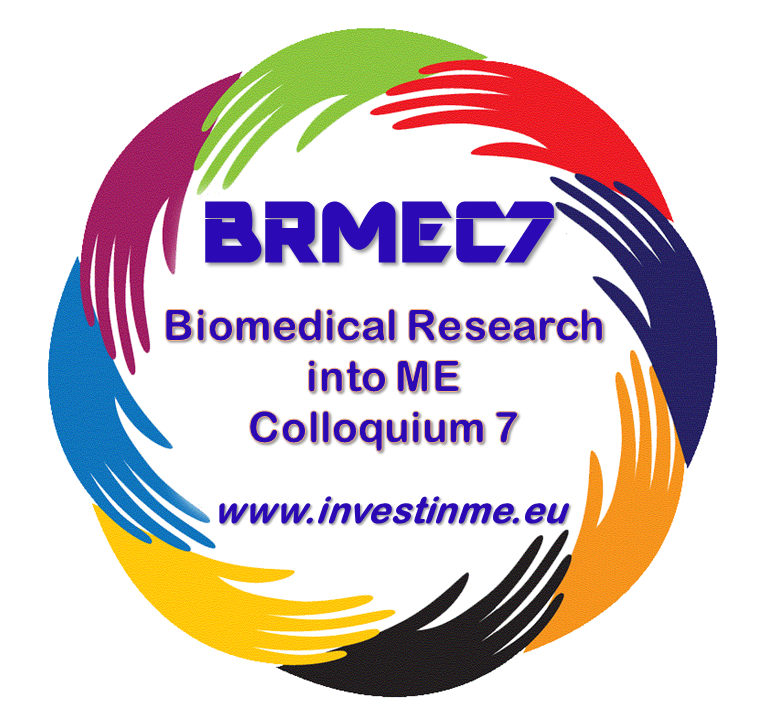
| BRMEC7 - Day 1 | ||||
|---|---|---|---|---|
| Welcome to the 7th Invest in ME Research International Biomedical Research into ME Colloquium 7 2017 | Dr Ian Gibson, UEA, UK | |||
| NIH Research into ME - Status Update and Plans | Dr Vicky Whittemore, NIH, USA | |||
| CDC Multisite study and future plans | Dr. Elizabeth Unger, CDC, USA | |||
| Data Collection (including the following) | ||||
| Modelling | Professor Nancy Klimas, Fort Lauderdale, USA | |||
| Long-term follow up: Experience and lessons for ME from Norfolk Arthritis Registry Project (NOAR) | Professor Alex MacGregor, Norwich, UK | |||
| Discussion | ||||
| Immunology (including the following) | ||||
| Dysregulation of Transient Receptor Potential (TRP) ion channels and calcium in natural killer cells in CFS/ME patients’ |
Professor Sonya Marshall-Gradisnik, NCNED, Australia
Professor Don Staines, NCNED, Australia |
|||
| Update on B-cell research and future plans at UCL |
Dr Jo Cambridge, London, UK
Fane Mensah, London, UK |
|||
| Studies of NK cells and cytotoxic T-cells in ME-patients from one Swedish and one Norwegian cohort | Dr Jakob Theorell, Stockholm, Sweden | |||
| EBV and lymphoma | Professor Michelle West, Sussex, UK | |||
| Discussion | ||||
| Metabolomics (including the following) | ||||
| Stanford Update | Professor Ron Davis, Stanford Genome Institute, USA | |||
| Cornell Update | Professor Maureen Hanson, New York, USA | |||
| Australian Update | Dr Chris Armstrong, Melbourne, Australia | |||
| Overview of metabolism studies at Haukeland | Professor Karl Johan Tronstad, Bergen, Norway | |||
| Discussion | ||||
| Neuroimaging (including the following) | ||||
| ME imaging review and ongoing study | Dr Per Julin, Stockholm, Sweden | |||
| Discussion | ||||
| BRMEC7 - Day 2 | ||||
|---|---|---|---|---|
| Opening 7th Invest in ME Research International Biomedical Research into ME Colloquium 7 2017 - Day 2 | Dr Ian Gibson, UEA, UK | |||
| Clinical Trials (including the following) | ||||
| LDN in ME/CFS: data on safety and efficacy | Dr Olli Polo, Tampere, Finland | |||
| RituxME and CycloME clinical trials | Professor Olav Mella, Bergen, Norway | |||
| Impaired glucose metabolism and PDH in ME/CFS? | Dr. Øystein Fluge, Bergen, Norway | |||
| B-vitamins in ME/CFS | Dr. Ingrid G. Rekeland, Bergen, Norway | |||
| Immunadsorbtion trial | Professor Carmen Scheibenbogen, Berlin, Germany | |||
| Discussion | ||||
| Microbiome (including the following) | ||||
| IFR/UEA update | Professor Simon Carding, Norwich, UK | |||
| Alterations in the enteric bacterial and viral microbiome in ME/CFS | Professor Ludovic Giloteaux, New York, USA | |||
| Columbia update | Associate Professor Mady Hornig, New York, USA | |||
| Discussion | ||||
| Biomarkers (including the following) | ||||
| miRNA in CSF | Professor James Baraniuk, Washington DC, USA | |||
| Epigenetic changes in ME/CFS | Dr Lubov Nathanson, Fort Lauderdale, USA | |||
| Genetic and functional genetic studies in ME / HLA and ME |
Dr Asgeir Lande , Oslo, Norway
Professor Ola Didrik Saugstad , Oslo, Norway |
|||
| Tbc | Professor Warren Tate, Otago, New Zealand | |||
| Lactate during exercise in ME/CFS | Dr Katarina Lien, Oslo, Norway | |||
| Discussion | ||||
| Colloquium Summary | ||||

1st - 2nd June 2016
The CPD-accredited Biomedical Research into ME Colloquium 6 (BRMEC6) took place in London over two days from 1st - 2nd June 2016.
This was the sixth Invest in ME - Research Colloquium and the objective was to increase international collaboration in research into ME.
The sixth colloquium was opened by Dr Vicky Whittemore of the USA National Institute of Research.
With full CPD accreditation the Colloquium involved the most experienced researchers in areas such as immunology, virology, neurology and bioinformatics.
Chairing and participating in the meeting were members of the Invest in ME Research Advisory Board and the newly formed European ME Research Group (EMERG).
We again had most of the main biomedical research initiatives now occurring throughout the world represented at the meeting.
The research Colloquium was in London and preceded the IIMEC11 annual international biomedical research conference on 1st June 2016.
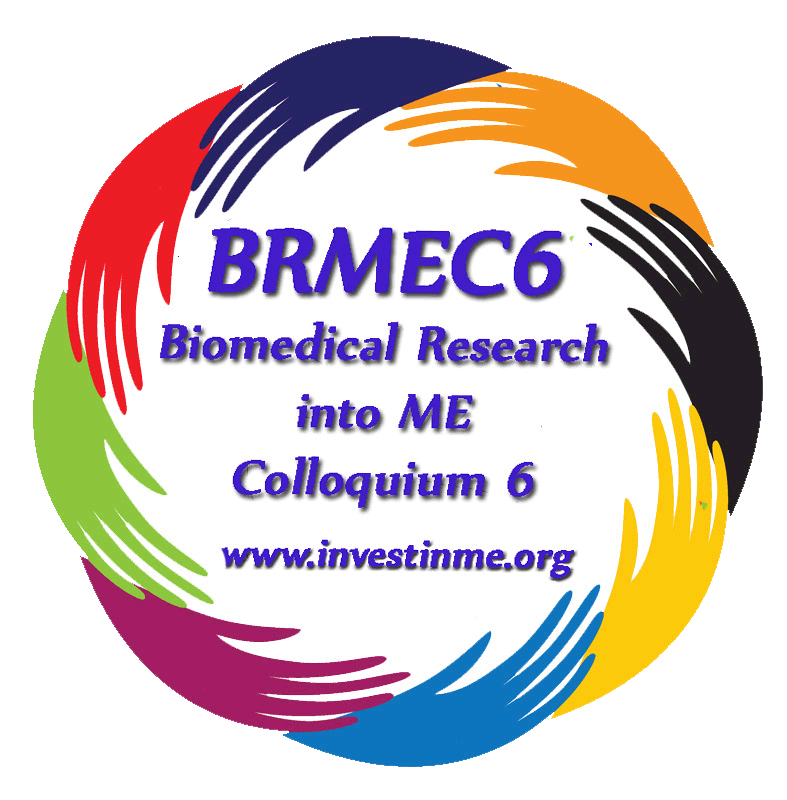
| BRMEC6 - Day 1 | |||||
|---|---|---|---|---|---|
| Welcome to the 6th Invest in ME International Biomedical Research into ME Colloquium | Dr Ian Gibson, UEA, UK | Professor Jonathan Edwards, UCL, UK | |||
| NIH Research into ME | Dr Vicky Whittemore, NIH, USA | ||||
| Diagnosis (clinical) – Patient Stratification (including the following) | |||||
| Clinical signs/symptoms of ME | Professor Olli Polo, Tampere University, Finland | ||||
| Diagnostics and Patient Stratification for Research | Dr Amolak Bansal, Epsom & St Helier NHS Trust, UK | ||||
| Protocols and Patient Databases for ME | Dr Luis Nacul, LSHTM, UK | ||||
| Big Data Approach: Severely Ill ME Cohort | Professor Ron Davis, Stanford, USA | ||||
| Chaired Discussion - Criteria to Use for ME/CFS Diagnosis | Professor Angela Vincent, Oxford University, UK | ||||
| Sample Standardisation SOPs for Research (including the following) | |||||
| Biobank Samples and Protocols for UK/Europe | Dr Eliana Lacerda, LSHTM, UK | ||||
| Analysis Protocols for ME | Professor Jonas Bergquist, Uppsala University, Sweden | ||||
| Chaired discussion Sample Standardisation SOPs for Research | Dr Jo Cambridge, UCL, UK | ||||
| Biomarkers: 1 Data | |||||
| Keynote Speech: Longitudinal Immunological & Virological Study for ME/CFS Biomarker Discovery | Professor Eleanor Riley, LSHTM, UK | ||||
| Biomarkers: 2 Imaging | |||||
| Immune-Brain Communication and Relationship to Inflammation and Cohort Selection Challenges | Dr Neil Harrison, Sussex University, UK | ||||
| Neuroimaging in Clinical Practice in ME | tbc | ||||
| Chaired Discussion Neuroimaging in ME Research | Professor Jonathan Edwards, UCL, UK | ||||
| Biomarkers: 3 Mitochondria | |||||
| Keynote Speech: Understanding and Preventing Mitochondrial Oxidative Damage | Dr Mike Murphy, MRC and Cambridge University, UK | ||||
| Mitochondria in ME/CFS | Professor Maureen Hanson, Cornell University, USA | ||||
| Chaired discussion/workshop with participants | Professor Jonas Blomberg, Uppsala University, Sweden | ||||
| Adjourn | |||||

BRMEC5 IIME RESEARCH MEETING LONDON, 2015
The Biomedical Research into ME Colloquium 5 (BRMEC5) took place over two days from 27th-28th May 2015.
This was the fifth Invest in ME Research Colloquium and over sixty researchers from thirteen countries round the world convened in London to discuss research, strategies and future planning.
The fifth colloquium built on past years and has now evolved into a major international event, with CPD accreditation, and involving the most experienced researchers in areas such as immunology, virology, neurology and bioinformatics.
Chairing the meeting was Dr Ian Gibson and Professor Jonathan Edwards - along with the Invest in ME Research Advisory Board.
The research meeting was by invitation only but the charity made available places for researchers and some students who would add to the meeting or who were interested collaborating with our increasing group of international researchers in performing biomedical research into ME.
We had representatives from most of the main biomedical research initiatives now occurring throughout the world represented at the meeting.
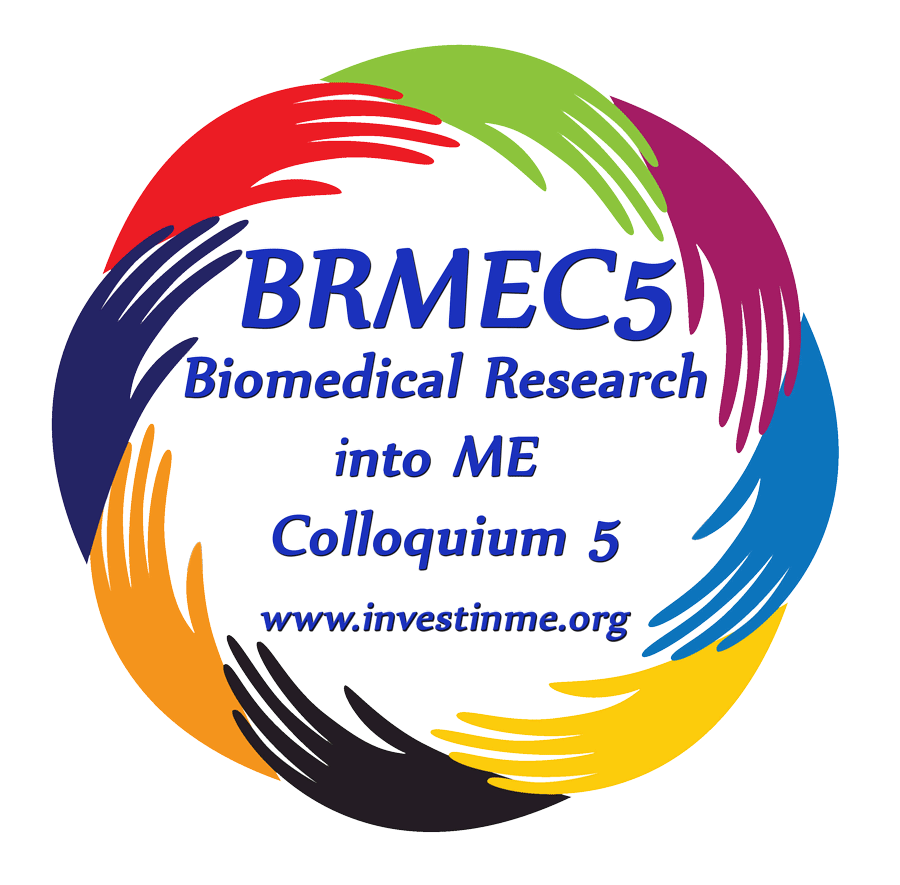
| BRMEC5 - Day 2 | |
|---|---|
| Welcome - Overview/summary of previous day Objectives of DAY 2 | Dr Ian Gibson, UEA, UK Prof Jonathan Edwards, UCL, UK |
| Neurology: Lead Angela Vincent (Oxford Univ.) | |
| Keynote Speech: Imaging Inflammation and Its Role in Neurodegeneration |
Professor David Brooks, Imperial College London, UK |
| Immune-Brain Communication and Relationship to Inflammation | Dr Neil Harrison Sussex Uni, UK |
| FMRI and ME/CFS | Prof James Baraniuk Georgetown University, USA |
| Discussions | |
| Chaired discussion with participants | |
| Biomarkers | |
| Immunological markers in ME/CFS | Professor Sonya Marshall-Gradisnik Professor Don Staines Griffiths University, Australia Australia |
| Vision and ME/CFS | Dr Claire Hutchinson Leicester Uni., UK |
| CSF Proteomics in a Swedish ME/CFS patient cohort | Prof Jonas Bergquist Uppsala Uni, Sweden Sweden |
| Glucocorticoid receptors and ME/CFS | Dr Amolak Bansal, Epsom and St Helier NHS University Hospital, Surrey, UK |
| Molecular markers before/after exercise | Prof Betsy Keller, Cornell Uni, USA |
| Discussions | |
| Chaired discussion with participants | |
| Clinical trials | |
| Trial design, good practice | Prof Jonathan Edwards, UCL, UK |
| Norwegian rituximab research/trials | Prof Olav Mella/ Dr Oystein Fluge Haukeland Uni.,Norway |
| Discussions | |
| Chaired discussion with participants | |
| Additional Topics | |
| Funding | tbc |
| Discussions | |
| Chaired discussion with participants | |
| Adjourn | |
EMERG
Background
For a long time it has been the objective of UK charity Invest in ME Research to forge international collaborations between researchers.
IiMER is a member of the European ME Alliance (EMEA) and EMEA has joined the European Federation of Neurological Associations in order to promote ME in Europe.
With our EMEA colleagues we have also had discussions on forming a European Advisory Board which would allow EMEA to discuss, initiate and fund biomedical research into ME. This has led to further development of the idea.
During the Invest in ME Research BRMEC5 meeting in May 2015 discussions with European researchers were conducted about the future of ME research and how better to coordinate and link together research activity in several European countries.
Based upon these conversations there appears to be overwhelming support and enthusiasm from the group of researchers whom IiMER/EMEA have brought together to work cooperatively and more effectively.
Forming a group or consortium of European researchers represents a very progressive step in not only helping to establish new collaborations and cement on-going ones but also in developing new research ideas and priorities and bidding for funds that would allow us to work together on joint projects.
This is the genesis of EMERG - The European ME Research Group
Facilitated also by our supportive MPs IiMER convened the inaugural meeting in London to bring this together in the hope that rapid and lasting progress can be made in the research, treatment and cure for myalgic encephalomyelitis.
Later, in January 2016 Professor Simon Carding and Dr Uldi Berkis from Latvia met in Norwich Research Park to discuss future planning and agree on a strategy.
EMERG also met prior to the BRMEC6 Colloquium in London in May 2016.
The charity continues to pomote European collaboration between researchers. The emergence of the EMERG concept could prove to be a critical developments in research into ME in Europe over the last decade.
Our Conference Journals
Our Conference Journal
This year was the tenth year that the charity had organised an international
conference week.

BRMEC4 RESEARCH MEETING LONDON, 2014
The BRMEC4 Colloquium was intended to harness the potential of international collaboration with an objective of extending research cooperation and help drive new initiatives with biomedical research into ME.
The research meeting was in London and preceded the IIMEC9 annual international biomedical research conference on 30th May 2014.
Almost 50 researchers from nine countries attended the colloquium and a number of new initiatives were created which will benefit biomedical research into ME.
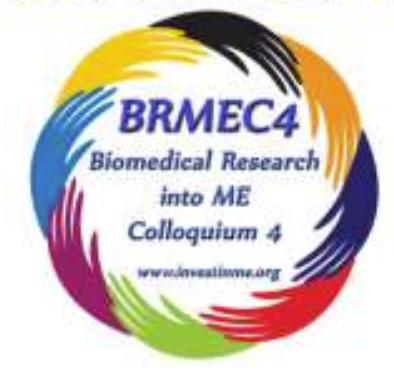
Welcome to London and BRMEC4 2014
Dear Participants,
Welcome to the Invest in ME Biomedical Research for ME Colloquium Meeting (BRMEC4) on 29th May 2014. Thank you again for participating in this exciting and innovative meeting which builds on the foundations made in previous years through meetings organised by the dedication and commitment of Invest in ME and its supporters.
Promising developments have been initiated in recent years which have created important possibilities for changing the way that Myalgic Encephalomyelitis (ME, known also as or ME/CFS or Chronic Fatigue Syndrome (CFS)) is researched and the way that patients are treated. High-quality research by an impressive group of researchers and physicians, with an emphasis on international collaboration - these are the aims of Invest in ME and it is our intention to continue to facilitate this and encourage new scientific research endeavours to understand the pathogenesis of ME.
This will be our fourth international ME research colloquium in London, taking place prior to our annual IiME international conference, and we look forward to enabling a unique contribution to understanding ME and suggest future research. For those who can use CPD points then this meeting has been awarded 6 CPD points by the Royal Colleges.
Co-Chairs of the meeting will be Dr Ian Gibson, former Dean of Biology at UEA, and Emeritus Professor of Connective Tissue Medicine Jonathan Edwards, University College London.
We look forward to meeting up in London.
Warm regards
Kathleen McCall Chairman Invest in ME
| Invest in ME BRMEC4 | |
|---|---|
| Welcome and introductions | Co-Chairs: Dr. Ian Gibson Prof.Jonathan Edwards UCL |
| Pathogen Discovery and Pathogenesis - CFI | Dr. Mady Hornig, Columbia Univ, USA |
| Infection-induced autoimmunity in ME | Prof. Jonas Blomberg, Uppsala Univ, Sweden |
| Microbiome of ME/CFS patients | Prof. Maureen Hanson, Cornell Univ.,USA |
| OMI research Update | Dr Andreas Kogelnik, OMI, USA |
| Chaired Discussions | Prof. Jonathan Edwards/Dr.Ian Gibson |
| Antibodies in Neurological Diseases | Prof. Angela Vincent, Oxford Univ. |
| Rituximab multi-centre clinical trial | Prof.Olav Mella/Dr. Oystein Fluge, Bergen, Norway |
| Rituximab UK clinical - Preliminary B-cell study |
Dr. Jo Cambridge, UCL, UK |
| EBV and ME | Prof. Carmen Scheibenbogen, Charite, Berlin |
| Chaired Discussions | Prof. Jonathan Edwards/Dr.Ian Gibson |
| Update on ANS studies | Prof. Julia Newton, Newcastle, UK |
| Brain imaging and ME | Prof. James Baraniuk Georgetown Univ., USA |
| NK-, B- and T-cell phenotypes and function in patients suffering from ME | Prof. Sonya Marshall-Gradisnik, Griifiths Univ.,Australia |
| ME Biobank | Dr. Eliana Lacerda/Dr Luis Nacul, LSHTM |
| Chaired Discussions | Prof. Jonathan Edwards/Dr.Ian Gibson |
| Ways to Continue Collaboration and Discovery Funding Possibilities - IiME Proposal | Plenary: Prof. Jonathan Edwards/Dr.Ian Gibson |
| Closing Summary and Future Directions | Prof. Jonathan Edwards/Dr.Ian Gibson Briefing to Invest in ME Conference |
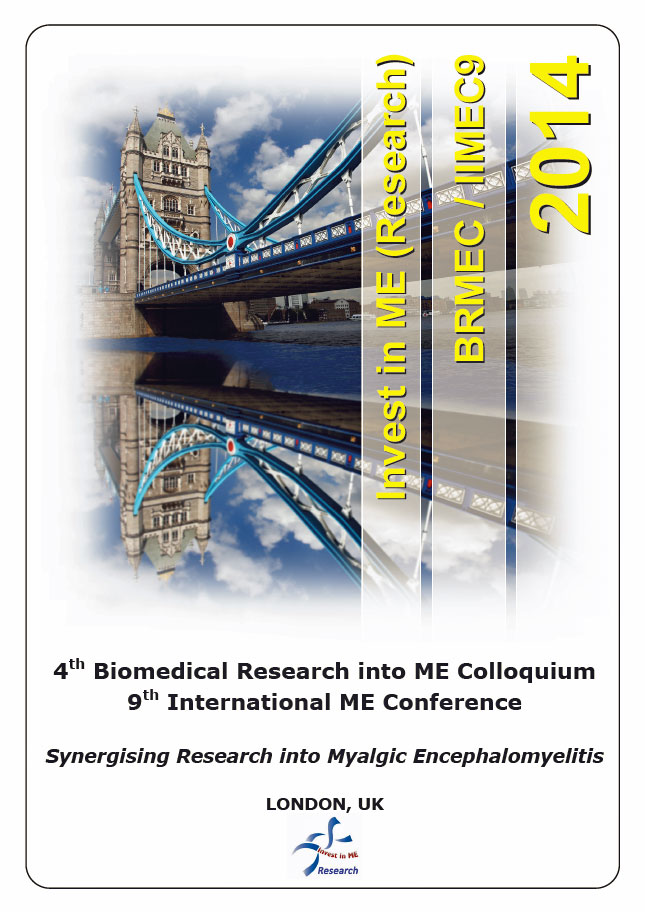
BRMEC4 Report
The Invest in ME Biomedical Research for ME Colloquium Meeting (BRMEC4) was held on 29th May 2014 in London and was the charity's fourth research meeting.
The charity organised and hosted the Colloquium prior to its annual international biomedical research conference every year.
The objectives were:
- To present the status of the latest initiatives occurring in biomedical research into ME
- Review experiences and expertise from other research areas in order to assist ME research
- To generate new ideas regarding research into ME and assess research strategies for ME research
- To discuss and explore the possibilities for collaboration and for funding for biomedical research into ME
Promising developments have been initiated in recent years which have created important possibilities for changing the way that Myalgic Encephalomyelitis is researched and the way that patients are treated. High-quality research by an impressive group
of researchers and physicians, with an emphasis on international collaboration -these are the aims of Invest in ME and it is our intention to continue to facilitate this and encourage new scientific research
endeavours to understand the pathogenesis of ME.
The Colloquium/Conference Summary is a document produced by the charity to aid healthcare professionals in becoming aware of the developments in ME research - many of which have been initiated by patients.
We have also included the Bansal Score Chart - from Dr Amolak Bansal's IIMEC9 presentation - which is meant to provide a simple way for guiding GPs in possible diagnosis of ME.
The charity is happy to provide the printed version of this document to help patients in their dealings with GPs and other healthcare staff.
Please contact Invest in ME for more details.
Please note - the following pdf document is copyrighted to Invest in ME and may not be copied or published without express permission from Invest in ME
Please use the link to this page if referring to this document
Our Conference Journals
Our Conference Journals
For each conference we produce an edition of the Journal of IiMER.
Containing news, articles and conference presentation abstracts.

BRMEC3 Research Meeting London, 2013
In May 2013 the Biomedical Research into ME Collaborative meeting was held in London with 40 researchers from 9 countries attending, prior to the IIMEC8 8th International ME Conference 2013
To raise awareness of ME, and promote collaboration, innovation and foundations for a clearer strategy of biomedical research
into ME, Invest in ME and the Alison Hunter Memorial Foundation of Australia continued the collaboration that has been a feature
for several years, and which established the Clinical Autoimmunity Working Group (at BRMEC2) which met in London in May 2012.
To attempt to increase collaboration and awareness and to encourage new researchers to the field
the BRMEC research Colloquiums are
arranged to bring together major researchers in order to
crowd source ideas on ME research - a Biomedical Research into ME Collaborative meeting.
At our IIMEC8 conference we focused on ME now becoming a mainstream research area.
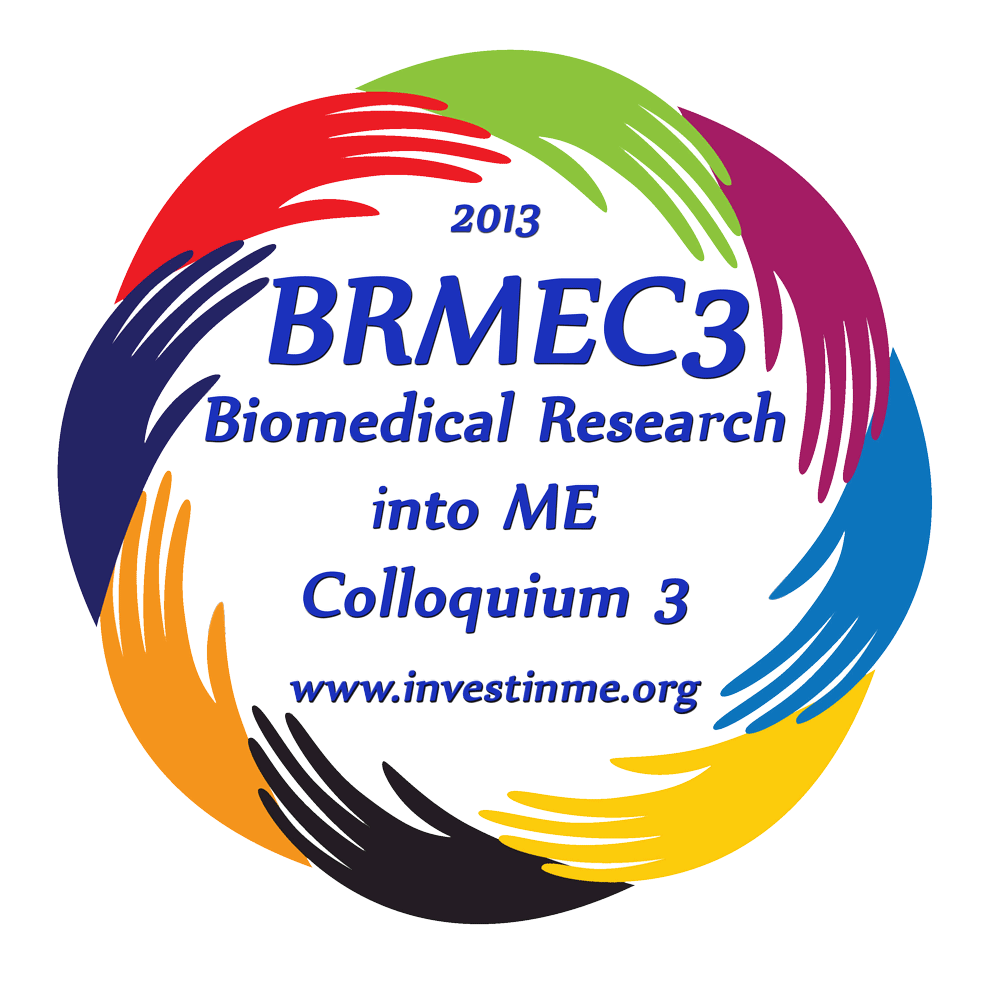
| Invest in ME Research BRMEC3 | |
|---|---|
| Welcome and introductions | (Chairs: Dr Ian Gibson/Professor Hugh Perry) |
| Pathogen Discovery and Pathogenesis = CFI | (Professor Mady Hornig) |
| Retroviruses and ME | (Professor Greg Towers) |
| Pathogen Discovery | (Professor Jonas Blomberg) |
| Gut Microbiota and ME | (Professor Simon Carding) |
| Chaired Discussions | (Dr Ian Gibson/Professor Hugh Perry) |
| Experience of Rituximab in ME/CFS and present a case for extending clinical trials as per Norwegian protocols or other parallel trials |
(Dr Oystein Fluge/ Professor Olav Mella) |
| Rituximab in autoimmune diseases | (Dr Jo Cambridge) |
| Update on immunological derangement that may dovetail with the Fluge et al findings. | (Dr Don Staines) |
| Screening NK-, B- and T-cell phenotype and function in patients suffering from ME | (Dr Julià Blanco) |
| Chaired Discussions | (Dr Ian Gibson/Professor Hugh Perry) |
| ANS studies | (Professor Julia Newton) |
| FDA Meeting outcome /Treatment with Vistide | (Dr Dan Peterson) |
| OMI MERIT Strategy | (Dr Andy Kogelnik) |
| Chaired Discussions | (Dr Ian Gibson/Professor Hugh Perry) |
| Funding Possibilities | |
| Ways to Continue Collaboration and Discovery | |
| Chaired Discussions | (Dr Ian Gibson/Professor Hugh Perry) |
| Closing Summary and future directions | (Ian Gibson/Hugh Perry/IIME) |
A conference report for the IIMEC8 public conference was written by Dr Ros Vallings
and included these comments regarding the Colloquium -
I was privileged to attend the 8th IiME conference in London on 31st May 2013.
This conference was preceded by a one day symposium gathering together 34 clinicians and researchers from a number of countries.
The presentations, brainstorming and discussion will, I am sure, lead to much collaborative research, sharing of ideas and furtherance of understanding
of this complex and very serious illness.
Prior to the conference IiME and AHMF had organised and hosted the Biomedical Research into ME Collaborative (BRMEC) meeting. This would actually be third such annual meeting organised in London around the conference events (we held a round-table "Corridor Conference" in 2011 and the two-day Clinical Autoimmunity Working Group (CAWG) meeting in 2012. We brought together 40 biomedical researchers from nine different countries to discuss, educate, cooperate and form collaborations in the future - for the benefit of all people with ME and their families.
The meting was a huge success with many complimentary comments being made by the
researchers.
The researchers continued to network at the IiME pre-conference dinner in the evening. There
were many threads and new initiatives created by this meeting and it justifies IiME's views that
biomedical research into ME needs to be the focus of effort and funding if we are to create
cures/treatments for this disease.
The charity continued to follow up many of the opportunities created by this meeting.
Welcome to London and BRMEC2 2013
Dear Friends,
It is an honour to welcome you to London and the Biomedical Research into ME Collaborative meeting. This meeting has been made possible through the continued commitment to biomedical research being made by UK charity Invest in ME and their supporters.
The objectives of the meeting are:
1. To present the status of the latest initiatives occurring in biomedical research into ME
2. To discuss and explore the possibilities for collaboration and for funding for biomedical research into ME
3. To generate new ideas regarding research into ME and assess research strategies for ME research
4. Review evidence for immunological derangement in ME
5. Review experiences and expertise from other research areas in order to assist ME research
6. To discuss opportunities for extending clinical trials in multiple centres and possibly internationally
7. To plan future events
We hope that the meeting will initiate new collaborations and generate new ideas for biomedical research into ME and help researchers support each other in the future.
The extraordinary skill and experience which can be harnessed by meetings such as last year’s Clinical Autoimmunity Working Group meeting in London and this year’s BRMEC meeting, as well as the possibilities to progress further understanding of the disease by “crowdsourcing” experience and ideas, promises to enable a unique contribution to understanding ME and suggest future research directions and perhaps treatments.
Chairing the meeting will be Dr Ian Gibson, former Dean of Biology at UEA and Professor Hugh Perry of Southampton University Chair of the Medical Research Council Neurosciences and Mental Health Board.
Invest in ME is keen and willing to support further collaborative efforts in biomedical research into ME and welcome the opportunity to continue these joint efforts,
Warm regards
Kathleen McCall Chairman Invest in ME

BRMEC2 Research Meeting London, 2012
To raise awareness of ME, and promote collaboration, innovation and foundations for a clearer strategy of biomedical research into ME, Invest in ME has joined with the Alison Hunter Memorial Foundation of Australia - in cooperation with Bond University and University of East Anglia - to establish a Clinical Autoimmunity Working Group which met in London on 30-31st May 2012.
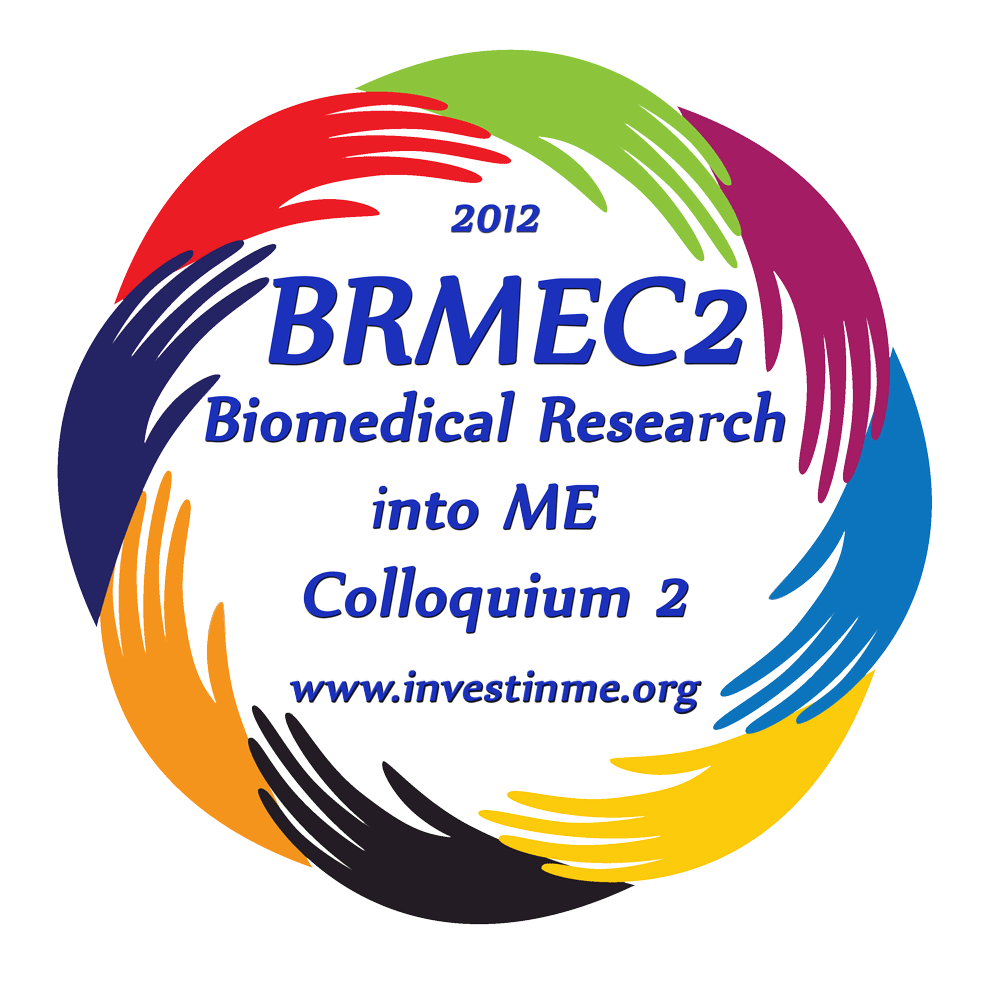
BRMEC2 Introduction Statements to BRMEC2 - CAWG
Kathleen McCall
Chairman Invest in ME
There is an urgent need for a coordinated strategy of biomedical research into myalgic encephalomyelitis (ME).
Good quality collaborative research efforts lead to understanding of the disease and better patient care and education of health care professionals.
The approach to treating ME must reflect the latest biomedical research evidence and ME needs to be accepted as a mainstream disease requiring major attention
from the medical profession and research institutions.
Patients need access to knowledgeable ME consultants who can make correct diagnoses using proper guidelines and need to understand the disease in its all phases.
Invest in ME is a UK charity established in 2006 by ME patients and parents of children with ME.
The charity was set up with the objectives of making a change in how ME is perceived and treated in the media, by health departments and by healthcare professionals.
Our efforts are focused on setting up a UK Centre of Excellence which will provide proper examinations and diagnosis for ME patients and initiate a coordinated
strategy of biomedical research into ME in order to find treatment(s) and cure(s).
Christine Hunter AM
Alison Hunter Memorial Foundation
People with ME face enormous obstacles to access health care. Among the impediments over past decades has been research which has shifted emphasis to fatigue and fatigue states with scant regard for the myriad yet distinguishing neurological, autonomic, and gastrointestinal features of ME. Semantics and biased attributions continue to deny the severely ill, both child and adult, the right to care which addresses their acute and chronic medical needs without fear. The Alison Hunter Memorial Foundation was established in 1998 through the initiative of the Public Interest Advocacy Centre, Sydney. The Foundation has a primary interest in the medical, legal and social needs of people with ME and the clinical documentation of severity. The Foundation supports biomedical research.
| BRMEC2 - CAWG Day 2 | |
|---|---|
| Overview/summary of previous day Objectives of DAY 2 | Tom Wileman PhD Don Staines MBBS MPH |
| Developments in neuropathology | Hugh Perry PhD Professor University of Southampton Experimental Neuropathology Centre for Biological Sciences Southampton UK |
| MRI evidence: Microvascular changes in CNS | Richard Kwiatek MBBS FRACP Lyell McEwin Hospital Senior Visiting Medical Specialist in Rheumatology Adelaide Australia |
| Genetics and informatics | Andy Kogelnik MD PhD Director Open Medicine Institute Mountain View CA USA |
| Plenary session | Chair: Ian Gibson PhD |
| Lessons from neuropathology of ME/CFS | Abhijit Chaudhuri DM MD PhD FACP FRCP Glasg FRCP Lond Senior Consultant Neurologist Queen's Hospital Romford Essex Centre for Neurological Sciences UK |
| Plenary Session: Open discussion: Collaboration strategies which might target research agencies such as NIH (US), NHMRC (Aus), MRC (UK). Consider developing an overarching strategic approach | Chair: Ian Gibson PhD |
| Summary and future directions | Chair: Ian Gibson PhD |
| Acknowledgements and Close | Invest in ME / Alison Hunter Memorial Foundation |
INTERNATIONAL SCIENTISTS EXPLORE AUTOIMMUNITY IN MYALGIC ENCEPHALOMYELITIS/CHRONIC FATIGUE SYNDROME
Wednesday 30th Thursday 31 May 2012, LONDON, UNITED KINGDOM
Medical and scientific experts from around the world convened in London on 30 and 31 May to discuss recent scientific developments in understanding myalgic encephalomyelitis/chronic fatigue syndrome (ME/CFS).
Co-Chair of the clinical autoimmunity working group for ME/CFS, public health physician Dr Don Staines stated ‘The recent discovery from researchers in Norway that an anti- CD20 B cell- depleting drug had a marked benefit in the treatment of ME/CFS has sent a clear message to scientists and medical practitioners around the world that this disease may have an autoimmune origin'.
While the clinicians who made the discovery, Dr Oystein Fluge and Dr Olav Mella and co-workers remain guarded in drawing unwarranted conclusions from the study published in PLoS late last year, further studies are now being planned in the hope of extending the study to a number of clinical sites and to increase the number of patients in the studies.
Dr Staines said
"The findings of Drs Fluge and Mella and their co-workers are consistent with theories previously published that ME/CFS may be an autoimmune disease. Despite compelling evidence that this disease is linked epidemiologically
to infection and the disorder possibly being a post-infection disturbance of the immune system, little funding has gone into studies of autoimmunity. This is clearly a multi-system illness which has been badly managed in terms
of the research agenda."
Experts who will attend the meeting include Professor Noel Rose, Director of Autoimmune Disease Research at Johns Hopkins Hospital (USA), Professor Stephen Miller (USA), Dr Mario Delgado (Spain) and Professor Hugh Perry, the chairman of the UK Medical Research Council Neurosciences and Mental Health Board. Immunological discoveries which may serve to act as biomarkers for ME/CFS will be presented by Dr Sonya Marshall-Gradisnik, Bond University, Australia.
Alison Hunter Memorial Foundation chunter@ahmf.org +61 2 99586285 Invest in ME info@investinme.org 07759 349743
WELCOME ADDRESS: DAME BRIDGET OGILVIE, AC DBE FRS
CONVENORS
- BOND UNIVERSITY, Population Health and Neuroimmunology Research Unit, Faculty of Health Sciences and Medicine, Gold Coast Australia
- University of East Anglia, Biomedical Research Centre, Faculty of Science, Norwich, United Kingdom
- GRIFFITH UNIVERSITY, School of Medical Science, Griffith Health Institute, Gold Coast, Australia
- ALISON HUNTER MEMORIAL FOUNDATION, AUSTRALIA
- INVEST IN ME, UNITED KINGDOM
PARTICIPANTS
- Dr Amolak Bansal MD
- Dr. James N Baraniuk MD
- Dr Monica Carson PhD
- Professor Simon Carding PhD
- Dr Abhijit Chaudhuri MD PhD
- Dr Mario Delgado PhD
- Dr Oystein Fluge MD PhD
- Dr Ian Gibson PhD
- Dr Konstance Knox PhD
- Dr Andreas Kogelnik MD PhD
- Dr Richard Kwiatek MBBS FRACP
- Professor Stephen D. Miller PhD
- Dr Sonya Marshall-Gradisnik PhD
- Professor Olav Mella MD PhD
- Dame Bridget Ogilvie AC, DBE, FRS
- Professor Hugh Perry PhD
- Dr Daniel Peterson MD
- Professor Noel Rose MD PhD
- Dr Katherine Rowe MD MBBS FRACP MPH DipEd
- Dr Rosamund Vallings MD
- Professor Tom Wileman PhD

BRMEC1 Research Meeting London, 2011
In May 2011, during the IIMEC6 conference weekend events, the charity included a new IiME idea - the 'Corridor Conference' - with clinicians and researchers discussing ways to collaborate, discuss issues and generally to progress knowledge and opportunities for research.
Thus was born the Invest in ME Biomedical Research into ME Colloquium - an event where researchers, and
clinicians, from around the world, could cooperate,
share experiences and ideas and form future collaborations
which would help overcome the lack of funding being given to biomedical research into ME by those bodies responsible for granting funding.
In this way Invest in ME sought to facilitate the type of high-quality research which we feel is the foundation for finding treatments and cures for ME

BRMEC1 - Corridor Conference - The Researchers Meeting
‘The Corridor Meeting’ was attended by 20 researchers/clinicians from 7
different countries and there were some observers present too.
Professor Geoffrey Burnstock gave a short presentation on purinergic signalling and the CNS to encourage new avenues to explore.
Professor Tom Wileman from University of East Anglia chaired the meeting skilfully and after several hours of discussion there was an action point for collaboration and co-operation to apply for funding for collaborative research.
We are happy to say that discussions between researchers have continued and are continuing.
We hope this will lead to more cooperation and joint ventures.
Read morefrom Ros Vallings' IIMEC8 International ME COnference report
"...top researchers who were presenting at the conference, and a few others who were attending, were gathered together to discuss their current research and to look at opportunities for ongoing collaboration. This was a 'closed' meeting, but I was lucky to be able to go along as an observer. Much of the research discussed was embargoed for any mention here, as is still awaiting publication. However we were fortunate to have a fascinating 30 minute talk from Professor Burnstock on his theories and research on purine signalling. This talk was repeated the following day at the conference (see below). I was glad to be able to hear it twice as it was complex biochemically. This could have much relevance in ME/CFS. All the researchers were keen to have ongoing contact with a view to collaboration."
Additional Events During Conference Week
The conference this year was expanded to include several ancilliary events, all of which were meant to achieve the maximum possible effect to raise awareness and achieve progress for ME.
The conference weekend began with a visit to parliament on Thursday morning followed up by a new
IiME idea - the “Corridor Conference - BRMEC1” - with clinicians and researchers
discussing amongst themselves
ways to collaborate, discuss issues and generally to progress knowledge and opportunities for research.
The first day ended with the IiME Pre-Conference Evening Presentation with Dr Ian Gibson and Hillary
Johnson presenting on Science, Politics and ME from both sides of the Atlantic. Friday the 20th May
was the conference day with for the full day of presentations. In the evening we were pleased to host
an informal meeting with researchers and representatives of the European ME Alliance (EMEA) to allow
more informal discussions to take place.
On Saturday 21st we hosted and chaired the EMEA AGM – now
eleven European countries working together.
Invest in ME published its Journal of IiME [click here] at the conference and abstracts of the conference presenters' presentations are included therein.
Visit to Parliament
The visit to parliament to meet APPG members and other MPs was organised by Invest in ME to allow interested MPs to listen directly to biomedical researchers and clinicians tell about their latest research and experiences in treating ME patients.
We had discussed this with the acting chair of the APPG, Annette Brooke, for many weeks before the event and it is credit to Annette’s office that this could be organised.
The group organised by Invest in ME included Annette Whittemore and Dr Judy Mikovits from WPI, USA; Dr Andreas Kogelnik OMI, USA; Dr David Bell, USA and the conference chairman Professor Malcolm Hooper.
We also invited Dr Ros Vallings from New Zealand and two of our European ME Alliance member representatives - from Germany and Denmark – as we thought it important to demonstrate that this is an international problem. We also had members of the Invest in ME Steering Group for the Norwich Research and Examination Facility (Invest in ME have been in contact with Norfolk MPs in order to canvass support for our proposal for an examination and research facility).
Present were the Countess of Mar, Ian Swales MP, Chloe Smith MP for Norfolk, Marcus Jones MP and a number of MPs’ assistants who attended on behalf of their MP as well as members of the public.
Annette Brooke MP chaired the meeting and after introductions Dr Mikovits, Mrs Whittemore, Dr Kogelnik and Dr Bell gave a short description of their current work and experience with ME. Professor Hooper mentioned the PACE trial situation.
MPs were surprised to hear that ME is most probably caused by an infectious agent. It makes one wonder what information the APPG has been provided in the past or whether the information about ME has not been presented to the MPs clearly enough.
The MPs were also very concerned to hear that no one from the DoH or the MRC was considering attending or sending representatives to the IiME conference. The MPs all agreed that they ought to attend such a major event in the European ME calendar and Mr Swales expressed great surprise that Professor Stephen Holgate had yet again ignored the conference (IiME have invited him for the past few years).
The subject of MRC funding came up. Invest in ME do not believe this to be as significant as do some, especially as this is not the first time that the MRC have initiated an expert panel to look at ME. We pointed out that whilst the MRC expert panel had taken well over two years to hold a couple of tardily minuted meetings the WPI had set up a state of the art lab and energised ME research around the world.
Although this may not be a popular view in the APPG it needs to be said.
The Norfolk examination and research facility proposal was discussed also. This proposal would create a base for biomedical research into ME, using cohorts of patients who would be properly examined and diagnosed, using facilities within the NHS. We elicited support for this initiative from the Norfolk MPs.
Overall we demonstrated to the MPs there that there is a way forward with biomedical research. We do not doubt Annette Brooke will help, as will Ian Swales.
The purpose was to put faces in front of the APPG people - to show them there is more happening than the talking shop approach that previous APPG meetings became. The biomedical research and the possibilities from that are now firmly presented. Whilst we do not expect any great changes from parliament or the APPG we feel it was important to try this initiative. Other ideas and other initiatives come from this.

Dr Eleanor Riley
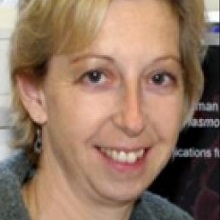
Professor of Immunology, LSHTM, UK
Professor Eleanor Riley BSc BVSc PhD FSB FMedSci
Eleanor Riley graduated from Bristol University with degrees in Cellular Pathology and Veterinary Science. After an internship in Veterinary Pathology at Cornell University (USA) she studied for a PhD in immunology and parasitology in the Department of Veterinary Pathology at the University of Liverpool. She began working on the immunology of malaria in 1985, as a member of the senior scientific staff at the Medical Research Council Laboratories in The Gambia, West Africa. In 1990, Eleanor moved to the University of Edinburgh as a Wellcome Trust Senior Research Fellow. Eleanor moved to the London School of Hygiene and Tropical Medicine in October 1998 where she is Professor of Infectious Disease Immunology. Eleanor is currently Chair of the BBSRC Bioscience for Health Strategy Advisory Panel and Deputy Chair of the MRC Infections and Immunity Board.Other Links
Dr Mike Murphy
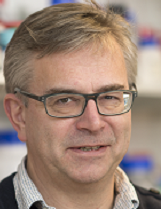
Programme Leader, MRC Mitochondrial Biology Unit, Cambridge
Dr Mike Murphy
EDUCATION & EMPLOYMENT1980-1984 BA in Chemistry, first class honours, first in class, Trinity College, Dublin, Ireland
1984-1987 PhD, Department of Biochemistry, University of Cambridge, UK
1988 Associate Research Scientist, Columbia University College of Physicians and Surgeons, New York
1989 Teacher with Voluntary Services Overseas (London) in Zimbabwe
1990-1992 Lecturer, Biochemistry Department, Trinity College, Dublin, Ireland
1992-2001 Lecturer/Senior Lecturer/Associate Professor, Biochemistry Department, University of Otago, New Zealand
1999 Sabbatical Visitor, Biozentrum, University of Basel, Switzerland
1999 Sabbatical Visitor, University of Alabama at Birmingham, USA
2000-2001 Associate Dean for Research, Otago School of Medical Sciences
2001-present Programme Leader, MRC Mitochondrial Biology Unit, Cambridge, UK AWARDS & HONOURS 1982 C Walter Jones Prize in Organic Chemistry
1982-1987 Foundation Scholarship
1984 Cocker Medal for Experimental Chemistry
1984-1987 Open Research Studentship, Peterhouse, University of Cambridge
2000 Applied Biosystems Medal, NZ Society of Biochemistry and Molecular Biology
2000 Research Medal of the New Zealand Association of Scientists
2001-present Honorary Fellow, Depts of Chemistry and Biochemistry, University of Otago
2008 The Nathan O. Kaplan Lecturer, University of California, San Diego
2012 Honorary Fellow of the Royal Society of New Zealand (Hon FRSNZ)
2016 Keilin Memorial Lecture and Medal EDITORIAL BOARDS
2003-present Biochemical Journal: Deputy chair (2007-), Editorial board (2003-)
1999-2014 Archives of Biochemistry and Biophysics: Editorial board
2009-2011 Current Opinion in Investigational New Drugs: Editorial board
2012-present Free Radical Biology and Medicine: Editorial board
2002-present FEBS Journal: Editorial advisory panel
2013-present Redox Biology: Editorial board
2013-present Redox Report: Editorial board
2010-present Free Radical Research: Editorial board
2003–2007 Biochemical Society Theme Panel III (Bioenergetics and Metabolism)
2001-present Scientific Advisory Board, Antipodean Pharmaceuticals, Auckland and San Francisco
2010-2013 Telethon Italy, Scientific Committee
2009-2011 Buck Institute for Aging Research, external advisory board for the U54 Interdisciplinary Research Center
PATENTS
Mitochondrially targeted antioxidants, Michael P. Murphy and Robin A. J. Smith, United States Patent US 6,331,532.
Mitochondrially targeted antioxidants, Michael P. Murphy and Robin A. J. Smith, United States Patent US 6,984,636.
Mitochondrially targeted antioxidants, Michael P. Murphy and Robin A. J. Smith, Australian Patent AU 763179.
Mitochondrially targeted antioxidants, Michael P. Murphy and Robin A. J. Smith, New Zealand Patent NZ 505352.
Mitochondrially targeted antioxidants, Michael P. Murphy and Robin A. J. Smith, United States Patent US 7,109,189.
Mitochondrially targeted antioxidants, Michael P. Murphy and Robin A. J. Smith, New Zealand Patent NZ 538371.
Triphenylphosphonium thionitrite nitric oxide donors, Michael P. Murphy and Robin A. J. Smith European Patent EP2066680.
Triphenylphosphonium thionitrite nitric oxide donors, Michael P. Murphy and Robin A. J. Smith. Canadian Patent CA 2664744.
Triphenylphosphonium thionitrite nitric oxide donors, Michael P. Murphy and Robin A. J. Smith. United States Patent US 12/732,909.
Mitoquinone derivatives used as mitochondrially targeted antioxidants, Michael P. Murphy and Robin A. J Smith, United States patent US 7,888,334.
Mitochondrially targeted antioxidants, Michael P Murphy and Robin A. J Smith, Canadian Patent CA 2311318
Other Links
Fane Mensah
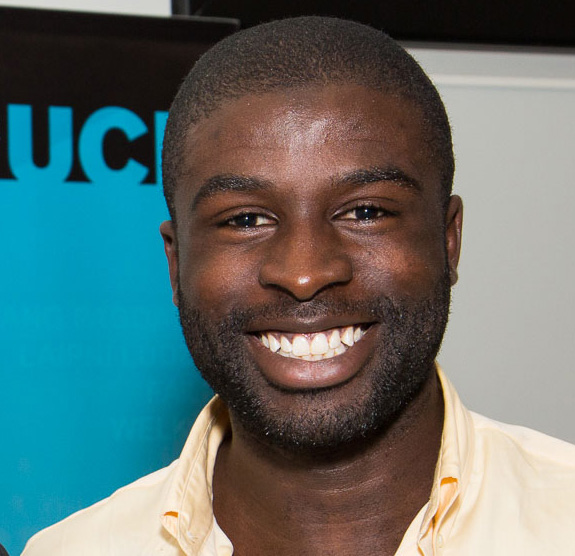
Research Assistant; Inflammation; Div of Medicine; Faculty of Medical Sciences, UCL, UK
Fane Mensah
Other Links
Dr Travis Craddock

Assistant professor of Psychology, Computer Science and Medicine, Institute for Neuro Immune Medicine, Nova Southeastern University, Miami, USA
Dr Travis Craddock
Travis Craddock, Ph.D. is an assistant professor of Psychology, Computer Science and Medicine applying systems biology and biophysics methods towards the purpose of identifying novel treatments for complex chronic illness involving neuroinflammation. His postdoctoral work was conducted under the supervision of Gordon Broderick, Ph.D., in the Broderick Laboratory for Clinical Systems Biology in the Department of Medicine, Faculty of Medicine and Dentistry at the University of Alberta. His work with Gordon Broderick, Ph.D., focused on using a theory driven systems biology approach to investigate neuroendocrine-immune interaction dynamics in neuroinflammation and its relation complex diseases such as Gulf War Illness, and chronic fatigue syndrome. This work was funded by the U.S. Department of Defense.
He received his BSc. in co-op physics from the University of Guelph and went on to finish a M.Sc. and Ph.D. in the field of biophysics at the University of Alberta under the supervision of Jack Tuszynski, Ph.D. His graduate research activities focused on subneural biomolecular information processing, and nanoscale neuroscience descriptions of memory, consciousness and cognitive dysfunction in neurodegenerative disorders such as Alzheimer’s disease.
Other Links
Dr Chris Armstrong

Department of Biochemistry and Molecular Biology, University of Melbourne, Victoria, Australia
Dr Chris Armstrong
Other Links
Dr Ingrid Rekeland
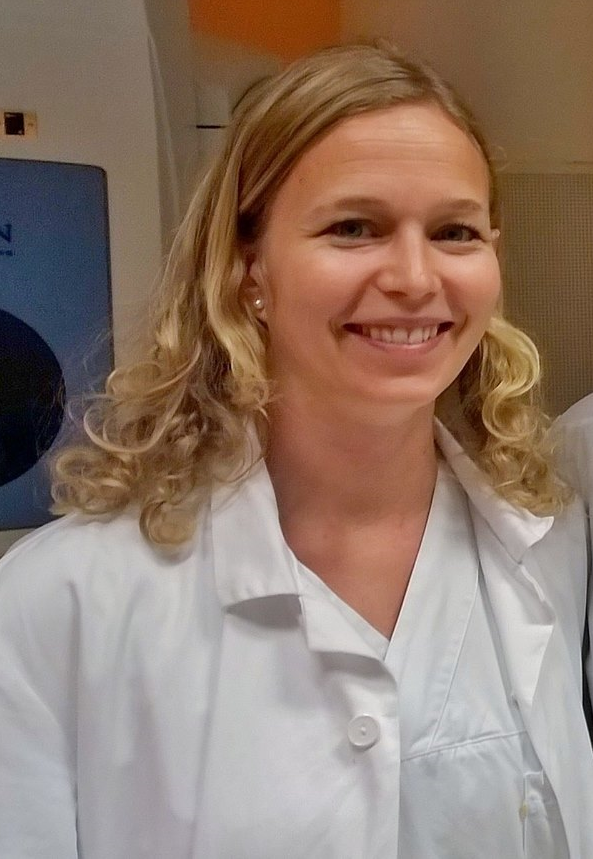
Neurology, Rheumatology, Clinical Immunology, Haukeland University Hospital , Bergen, Norway
Dr Ingrid Gurvin Rekeland
Other Links
Dr Lubov Nathanson
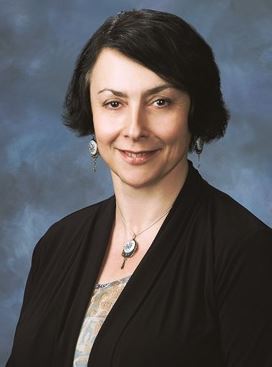
Genetics, Molecular Biology, Bioinformatics, Nova Southeastern University , Florida, USA
Dr Lubov Nathanson
Other Links
Professor Ola Didrik Saugstad
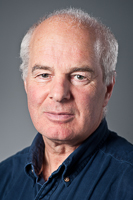
Professor - Paediatric Research Institute, Institute of Clinical Medicine, University of Oslo, Norway
Professor Ola Didrik Saugstad is a Norwegian pediatrician and neonatologist noted for his research on resuscitation of newborn children and his contribution to reduce child mortality.[2] Since 1991, he has been Professor of Pediatrics at the University of Oslo and Director of the Department of Pediatric Research at Oslo University Hospital, Rikshospitalet
Saugstad received the 2012 Nordic Medical Prize, is a member of the Norwegian Academy of Science and Letters and became a Knight First Class of the Order of St. Olav in 2010.
Other Links
Dr Asgeir Lande
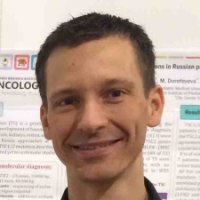
Institute of Clinical Medicine, University of Oslo, Norway
Dr Asgeir Lande
Other Links
Dr Katarina Lien
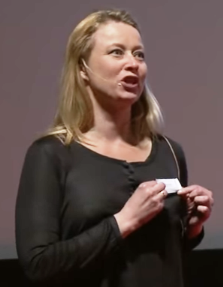
University of Oslo, Norway
Dr Katarina Lien graduated from the Faculty of Medicine, University of Oslo in 2000. I have clinical experience from primary care and psychiatry, and started working at the CFS/ME Centre at Oslo University Hospital in 2011.
She is particularly interested in pathophysiological mechanisms in chronic diseases.
In 2012 she received funding from The Norwegian Directorate of Health and The National Advisory Unit on CFS/ME, in order to gain experience on the use of CPET in patients with CFS/ME.
Currently, she is holding a research grant from the Norwegian ExtraFoundation for Health and Rehabilitation for the Ph.D. project “Cardiopulmonary exercise testing in patients with CFS/ME”.
She has been involved in the planning and implementation of the Rituximab trial RituxME, and is the local Principal Investigator at the CFS/ME Centre, Oslo University Hospital.
She is also engaged in CFS/ME patient education and information, and is a member of the Norwegian ME Association Scientific Advisory Board.
Other Links
- Norges ME Forening Presentations: IACFS/ME Biennial Conference. October 2016. International Association for CFS/ME. Fort Lauderdale, Florida: Lien K, Johansen B, Veierød MB, Haslestad AS, Melsom MN, Kardel KR, Iversen PO. “Blood lactate increases more rapidly after a previous exercise challenge in patients with chronic fatigue syndrome/myalgic encephalomyelitis (CFS/ME) than in healthy subjects” (manuscript in preparation). Publications: 1. Fluge, O., O. Mella, O. Bruland, K. Risa, S. E. Dyrstad, K. Alme, I. G. Rekeland, D. Sapkota, G. V. Rosland, A. Fossa, I. Ktoridou-Valen, S. Lunde, K. Sorland, K. Lien, I. Herder, H. Thurmer, M. E. Gotaas, K. A. Baranowska, L. M. Bohnen, C. Schafer, A. McCann, K. Sommerfelt, L. Helgeland, P. M. Ueland, O. Dahl and K. J. Tronstad (2016). "Metabolic profiling indicates impaired pyruvate dehydrogenase function in myalgic encephalopathy/chronic fatigue syndrome." JCI Insight 1(21): e89376.
Professor Warren Tate
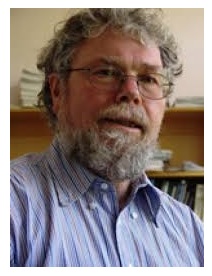
University of Otago, New Zealand
Professor Warren Tate from University of Otago in New Zealand - is an internationally respected biochemist, winner of the Royal Society of New Zealand's top science honour - the 2010 Rutherford Medal, and was also named a Companion of the New Zealand Order of Merit. His honour citation noted that Professor Tate was a molecular biologist, whose research had "revolutionised understanding" of how proteins were synthesised in living cells. His research had shown how proteins contributed to memory formation and neurological disease, and had important implications for HIV, Alzheimer's and chronic fatigue syndrome. Professor Tate is a Fellow of the Royal Society of New Zealand and of the New Zealand Institute of Chemistry. He has been a Fellow of the Alexander von Humboldt Foundation of Germany, and an International Research Scholar of the Howard Hughes Medical Institute of the United States.
Other Links
Assistant Professor Petter Brodin
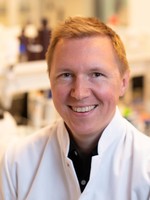
Karolinska Institutet, Sweden
Assistant Professor Petter Brodin's team at Karolinska Institutet in Sweden - is aiming to understand human immune system variation in health and disease, and understand the factors that shape human immune systems.
Other interests are in defining better metrics of immune system health and develoingp methods for better immune system analyses in human patients.
As a physician at the department of pediatrics at the Karolinska University Hospital, he has a particular interest in understanding when and how human immune systems are shaped early in life, and the influences by environmental exposures such as the microbiome, infections, vaccines, nutritional components etc in this process.
His team is firmly convinced that the way to understand human immune systems and their variation,
is to analyse all system components simultaneously and relathionships between these taken into account.
This have recently been made possible with the development of novel high-dimensional methods operating at single-cell resolution, such as Mass cytometry and scRNA-seq.
To analyze human immune systems at the systems-level, his team is developing novel experimental methods and algorithms for analyses.


